24 septembre 2020
#SaveTheDate – L’iDFRights est partenaire aux cotés de L’université Sorbonne Paris 1, Stanford University & A New Governance de l’Interactive summit et de son workshop en ligne « Digital Human Rights & a New Governance Model ».
#Workshop #DigitalHumanRights #Data #DataGouvernance #HumanCentricData
What are digital rights? And how do Human Rights relate in the digital age? How do we protect and secure rights of individuals in this digital world? And most importantly, how do we change governance models to fit what we need?
Data has become the most fluid and in-demand commodity of the 21st century. Digitalized societies and the use of data and AI pose a high number of questions and challenges for the rights of individuals. Social media has been boundlessly integrated into our lives without regard. And further, data is now the basis for exercising a number of basic freedoms and human rights. How do we secure the right to privacy and basic human rights in the digital world? And how do we protect those rights? Which governance models do we need to create? How can we leverage recent innovations of Silicon Valley to propel this process? How can we empower people with their data?
Be a part of the discussion on human rights in the digital age with a team of academics and business leaders from across the world and work on concrete human centric data circulation projects to boost a new data economy. The outcomes will be put into use in various services and in the European personal data infrastructure.
This active 3-day online workshop consists of high-level presentations, ongoing case studies, and entrepreneurial hacks for human rights, and the development of new Models for Governance. The course is presented in a collaboration between the Paris 1 Panthéon-Sorbonne University, the Institut de Recherche Juridique de la Sorbonne – IRJS, Stanford Center for Human Rights and International Justice initiative on Responsible Digital Leadership, aNewGovernance international initiative on data governance and the Institute for Digital Fundamental Rights.
This discourse on Governance Models will feed into The Digital Fundamental Rights Institute and a New Governance Initiative which are collaborating to build standards (legal, technical, business, design) for a human centric data circulation infrastructure. The results is expected to be presented at a Conference on Digital Human Rights at Stanford University.
Format: Three hours of online workshops each day for three days from October 5-7. Participants will work in three tracks :
1. Skills and employment: Controlling skills data and getting the rights job offers and trainings; having an up-to-date dynamic resume
2. Finance: Responsible rights and digital leadership in the financial sector. Focus on ethical challenges including bias and how to manage ethical dilemmas
3. Smart City Mobility: Controlling mobility data and moving around according to needs and values for a multimodal, green and inclusive mobility
For each track, participants will consider the technical, legal, economical, ethical and governance aspects of data use and circulation, the new services we can bring through human-centric data use. The goal is to work on the value and conditions of a new data economy based on human rights and to start implementing it. Participants will work on concrete solutions with top organizations from around the world (major cities, public stakeholders, big corporations, startups, universities, etc.).
Some of the engaged partners include French and Swedish National Employment Agencies, CapGemini, LinkedIn, City of San Francisco, City of Helsinki, City of Brussels, University of Paris 1 Sorbonne, Responsible Digital Leadership project at Center for Human Rights and International Justice at Stanford University, the Danish Financial Services Union (Trade Union) and a group of Banks and Insurance Companies ( MAIF, Generali, Sparnord, DNB, Nykredit, Swedbank, VISA), graduate/postgraduate/business professionals engaged in ESG, CSR, Human Rights.
Admission is a selective process, and applications are reviewed. To be eligible to apply, students must:
● Have graduated with an undergraduate degree
● Be at least 21 years of age by the start of the program (June 20, 2020)
Co-conveners:
David Cohen is appointed in the Classics department at Stanford. Professor Cohen is the founder and director of the Center for Human Rights and International Justice at Stanford University.
Soren Jorgensen is a Fellow at the Center for Human Rights & International Justice at Stanford University and former Consul General and CEO of The Tech Innovation Center for Denmark in Silicon Valley.
Radhika Shah is co-president of Stanford Angels & Entrepreneurs, advisor to the SDG Philanthropy Platform and a fellow at The Center for Human Rights & International Justice at Stanford University. She is on the Advisory Board for the Center for Effective Global Action (CEGA) at UC-Berkeley.
Laurent Vidal is associate professor at the Paris 1 Panthéon Sorbonne university and the co-director of the research department on « Public and Private Economic Law » of the « Institut de Recherche Juridique de la Sorbonne – IRJS ». He is also a lawyer at the Paris bar, the Vice-President and founding member of the Institute for Digital Fundamental Rights.
Matthias De Bièvre is the C.E.O of Visions, a software company focused on empowering people with their data, he is cofounder of aNewGovernance, the coordinator of the Skills Alliance and a founding member of the Institute for Digital Fundamental Rights.
#Dans les médias, #Actualités





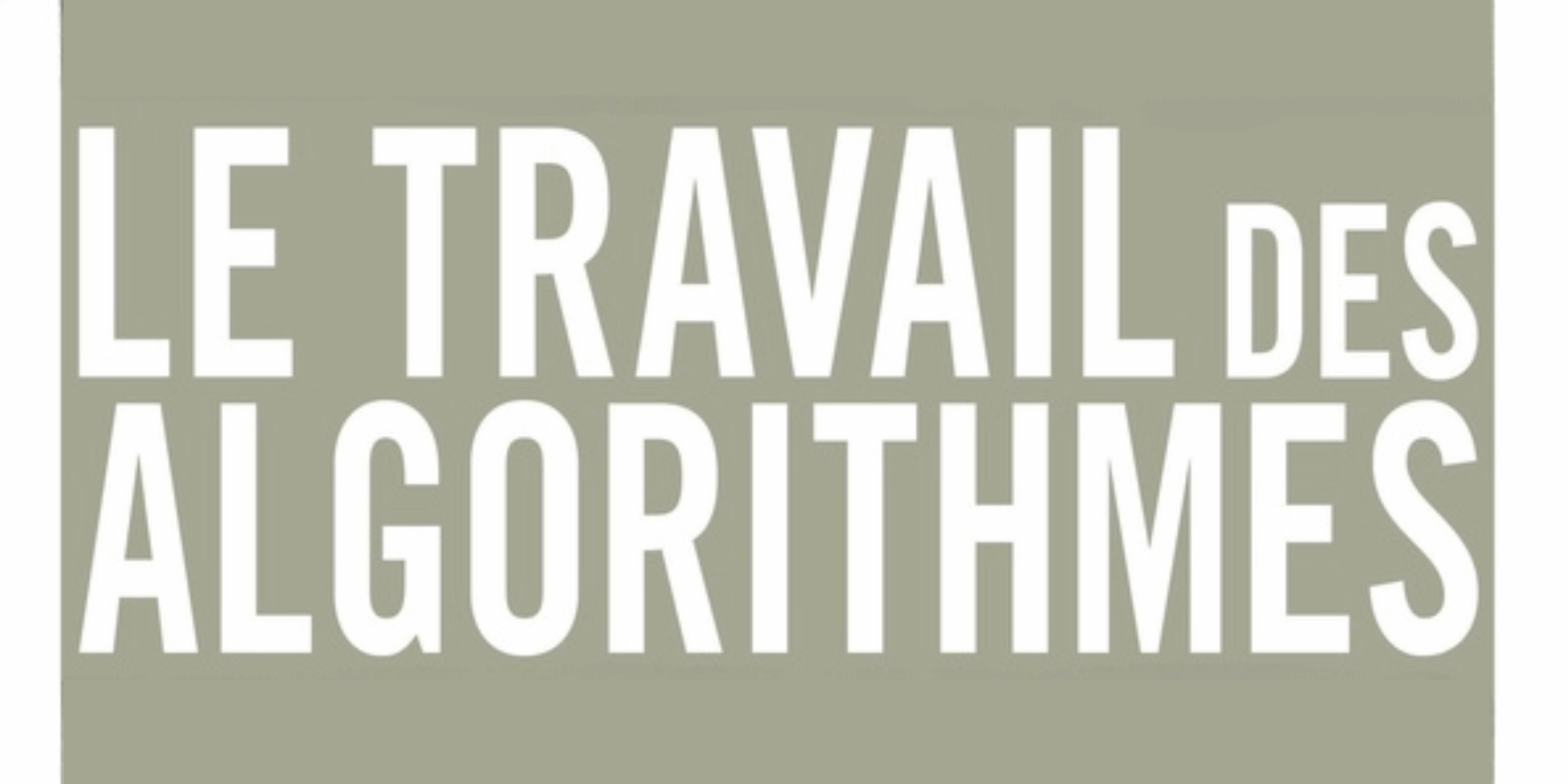
Dossier « Le travail des algorithmes » dans Socio

Éditorial de Michel Wieviorka dans Socio



Conference : How do we stack up ? | 02 june 2025
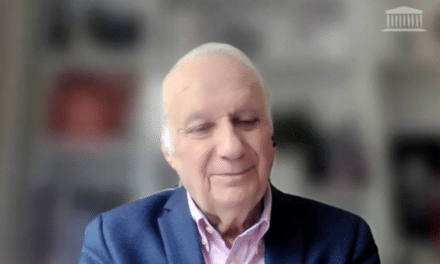


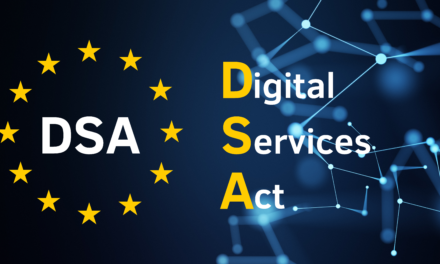



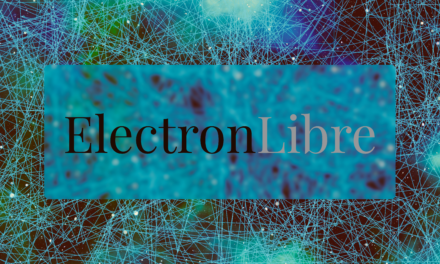
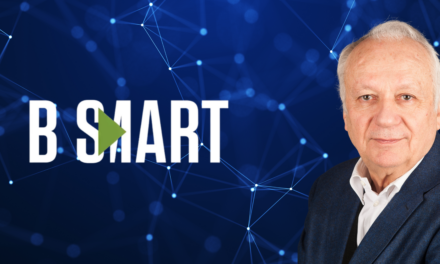
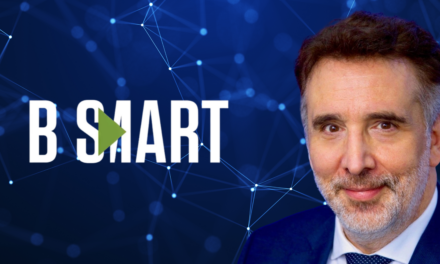
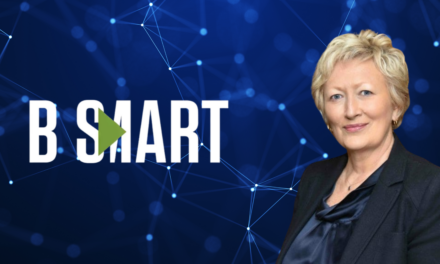






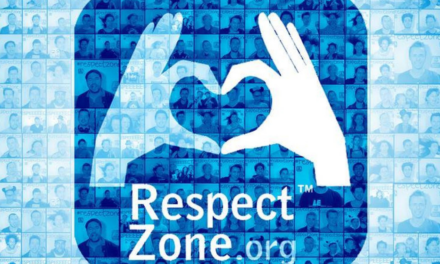

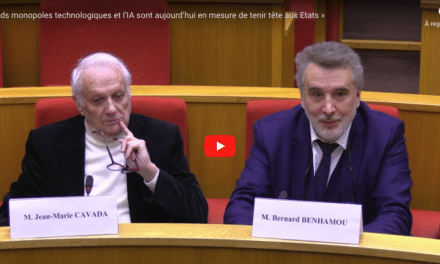







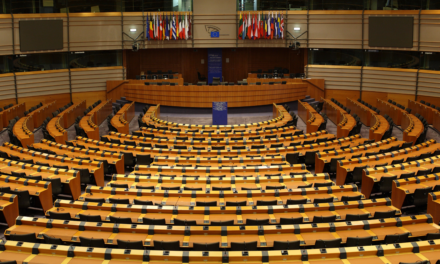



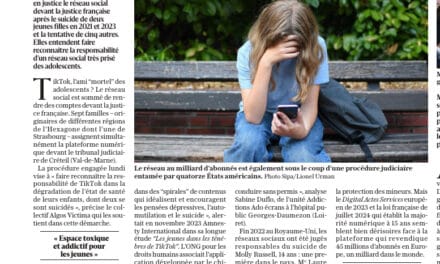




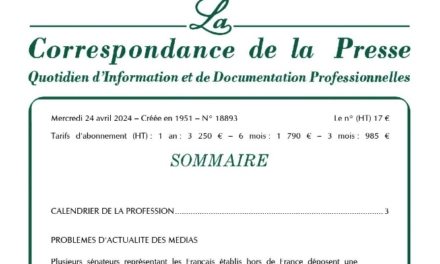
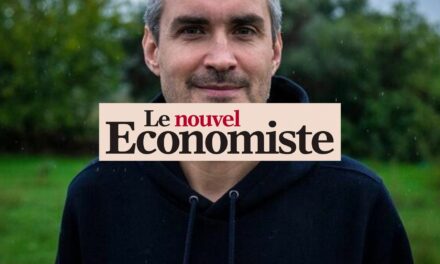




![[DSA, AI Act] Régulation, et si l’Europe avait raison ? Podcast les Eclaireurs du Numérique avec Jean-Marie Cavada](https://idfrights.org/wp-content/uploads/2023/12/8c234391-01e8-40d4-9608-4ea6c80d4f11-440x264.jpg)


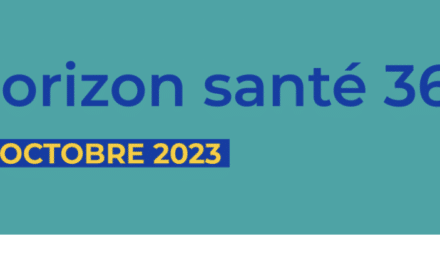



Interview de Jean-Marie Cavada pour R2PI Podcast

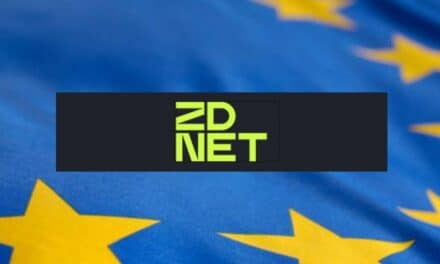










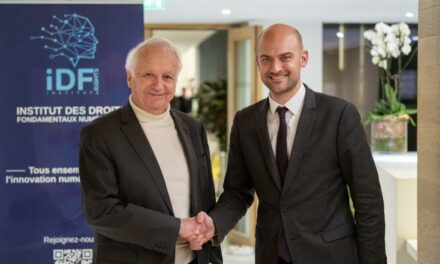
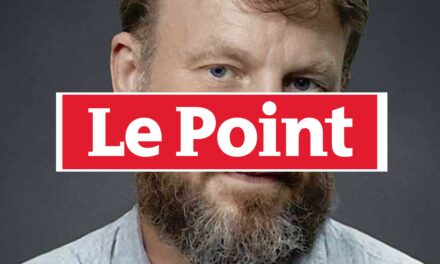
















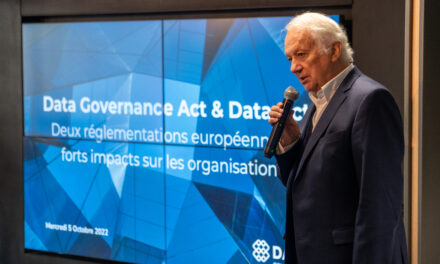




Concurrence : Google au pied du mur





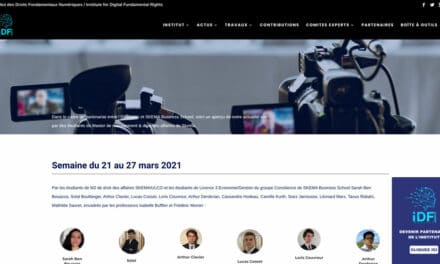
Les news qui ont fait l’actu 4 avril au 10 avril
Les news qui ont fait l’actu 21/02 – 26-02

Les news qui ont fait l’actu 25


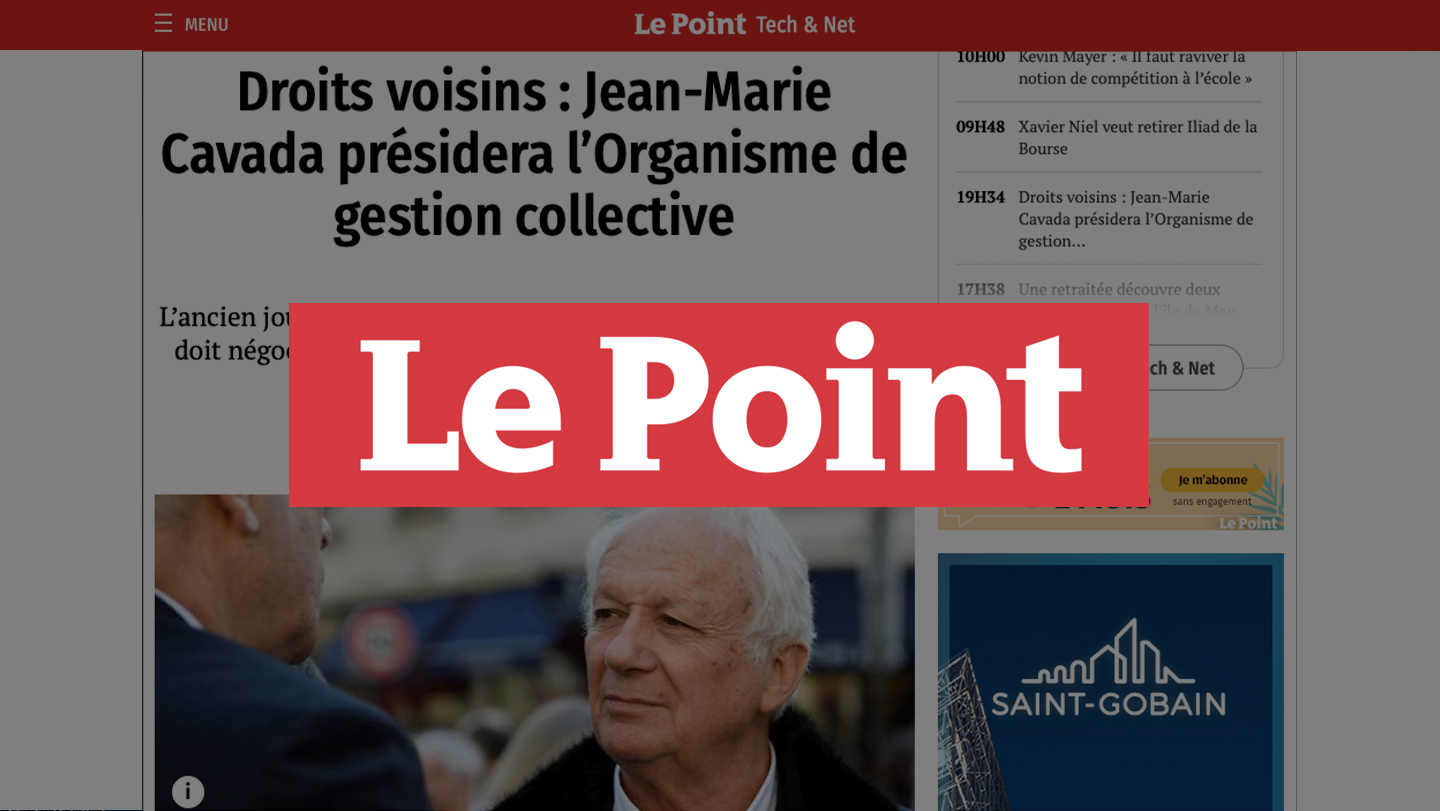
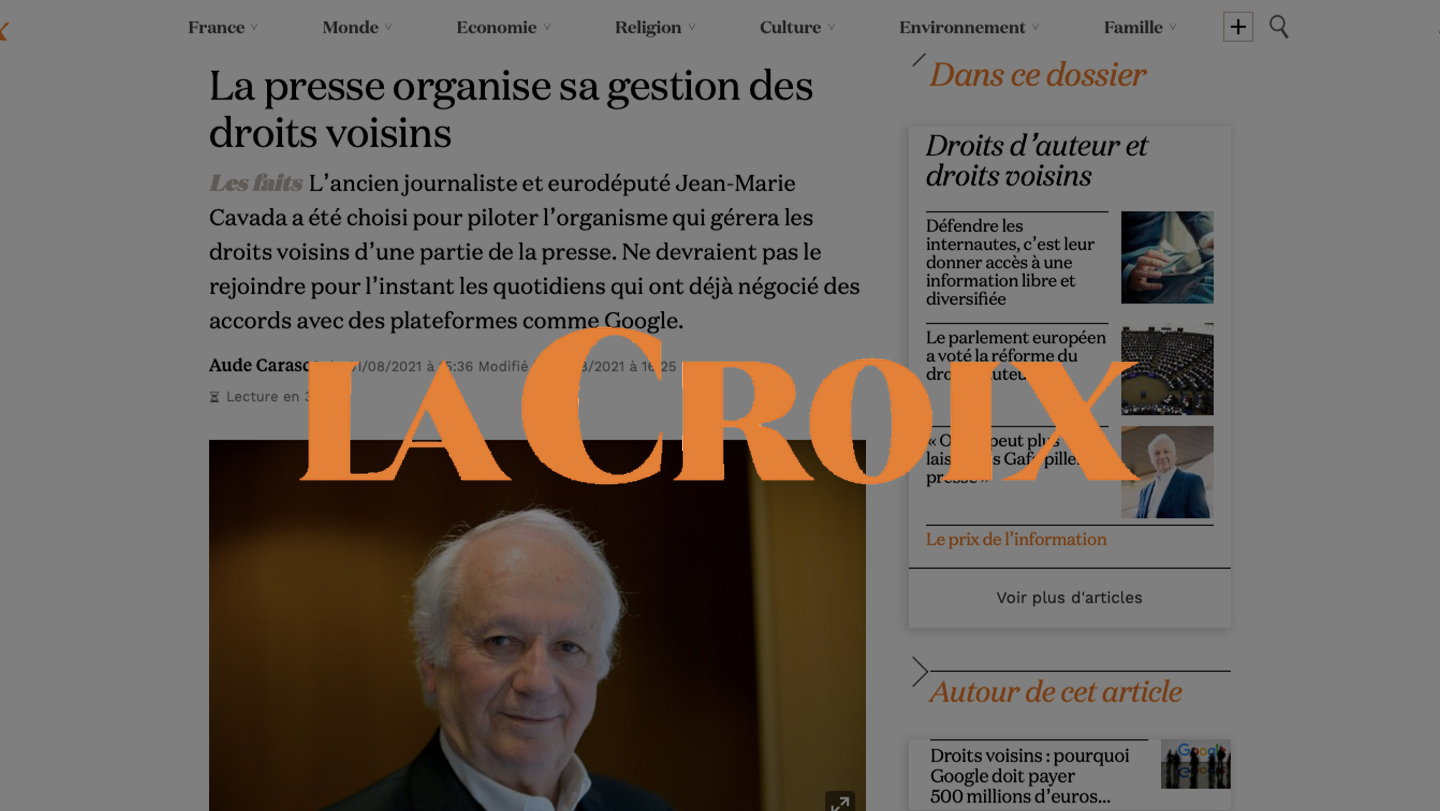









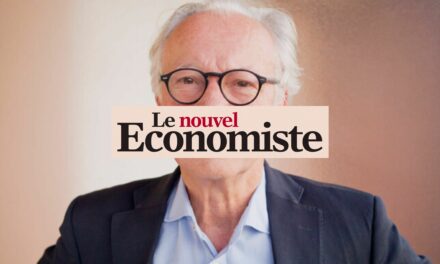
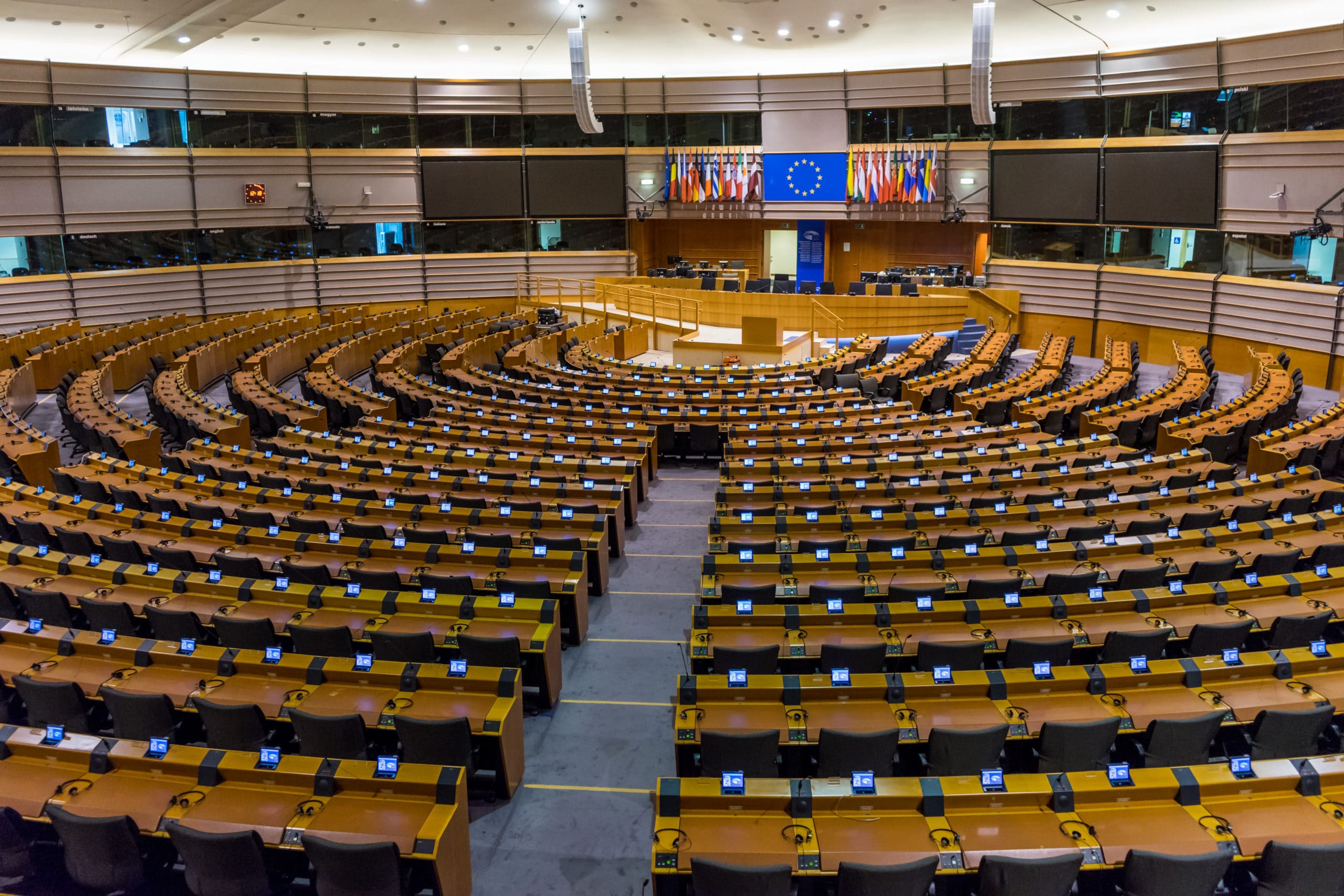
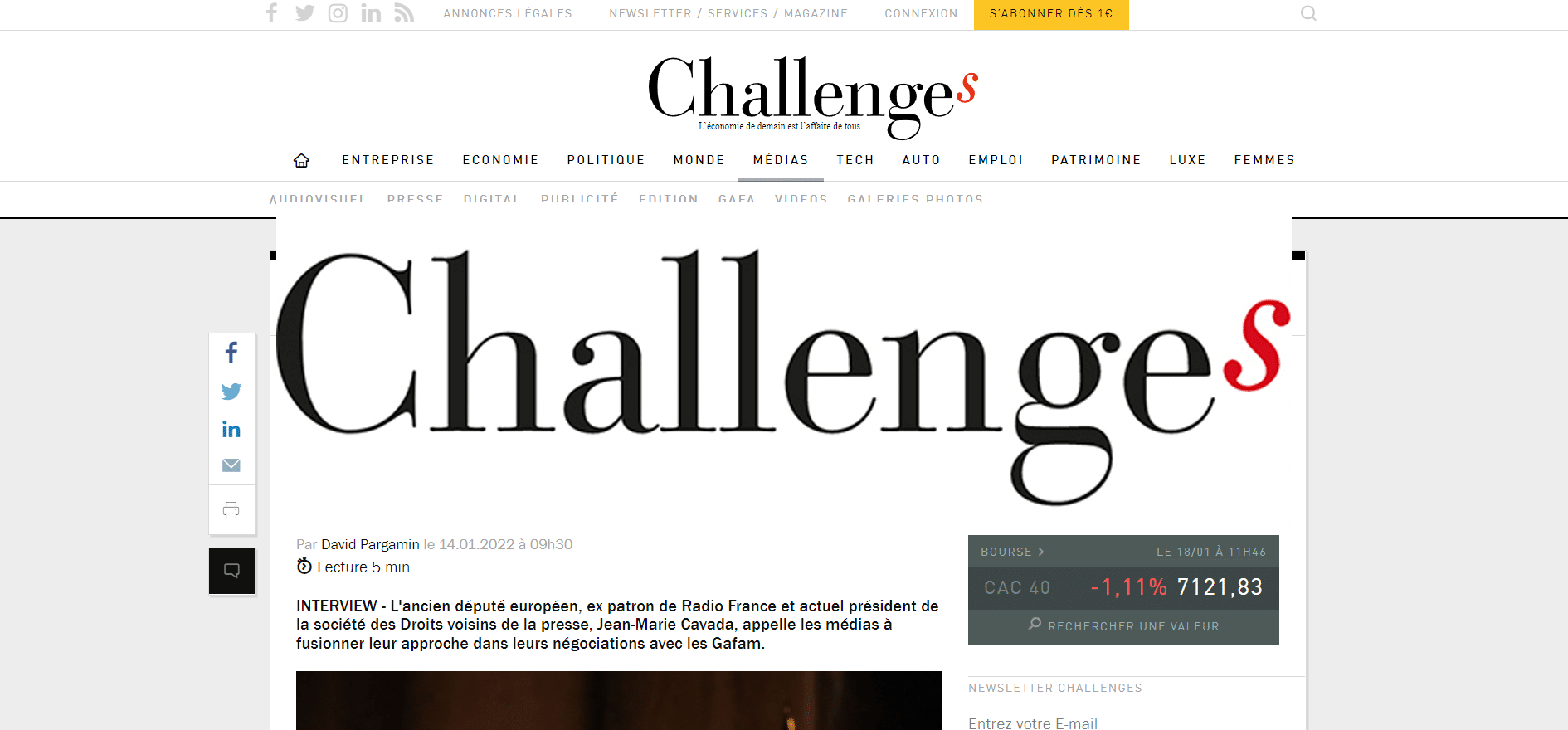


L’EUROPE, LE BUFFLE, L’OURS ET LE PANDA
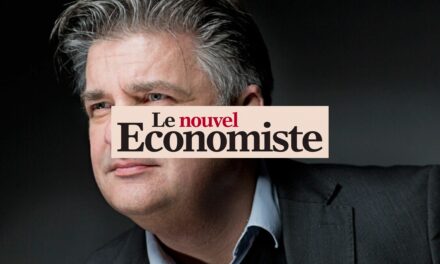



Emission Hebdo Com, BFM Business





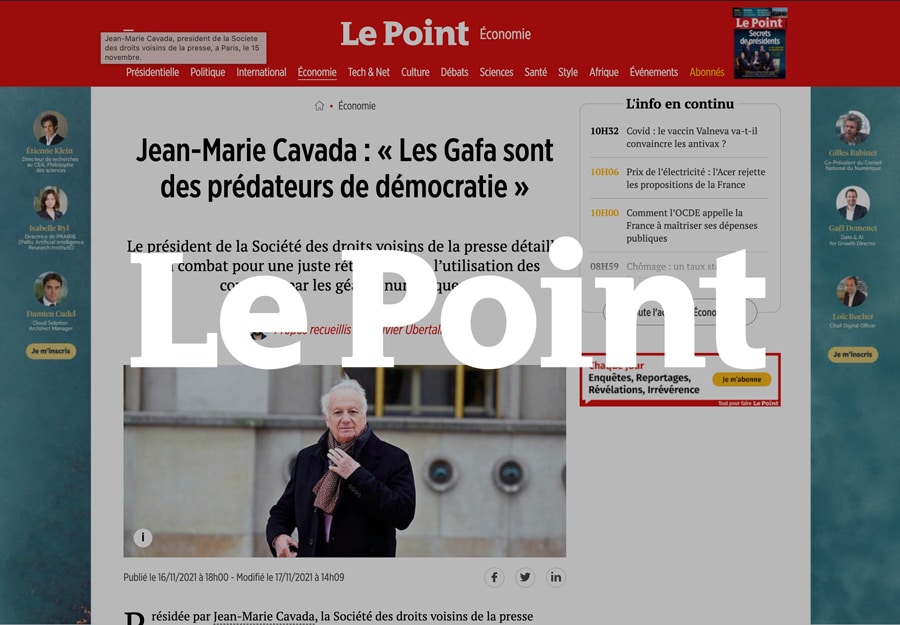

Les rencontres d’Eguilles






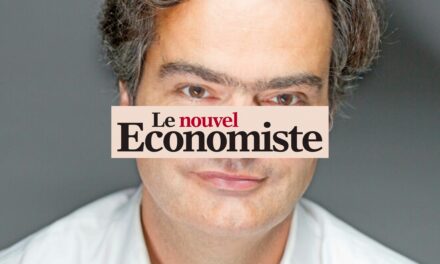



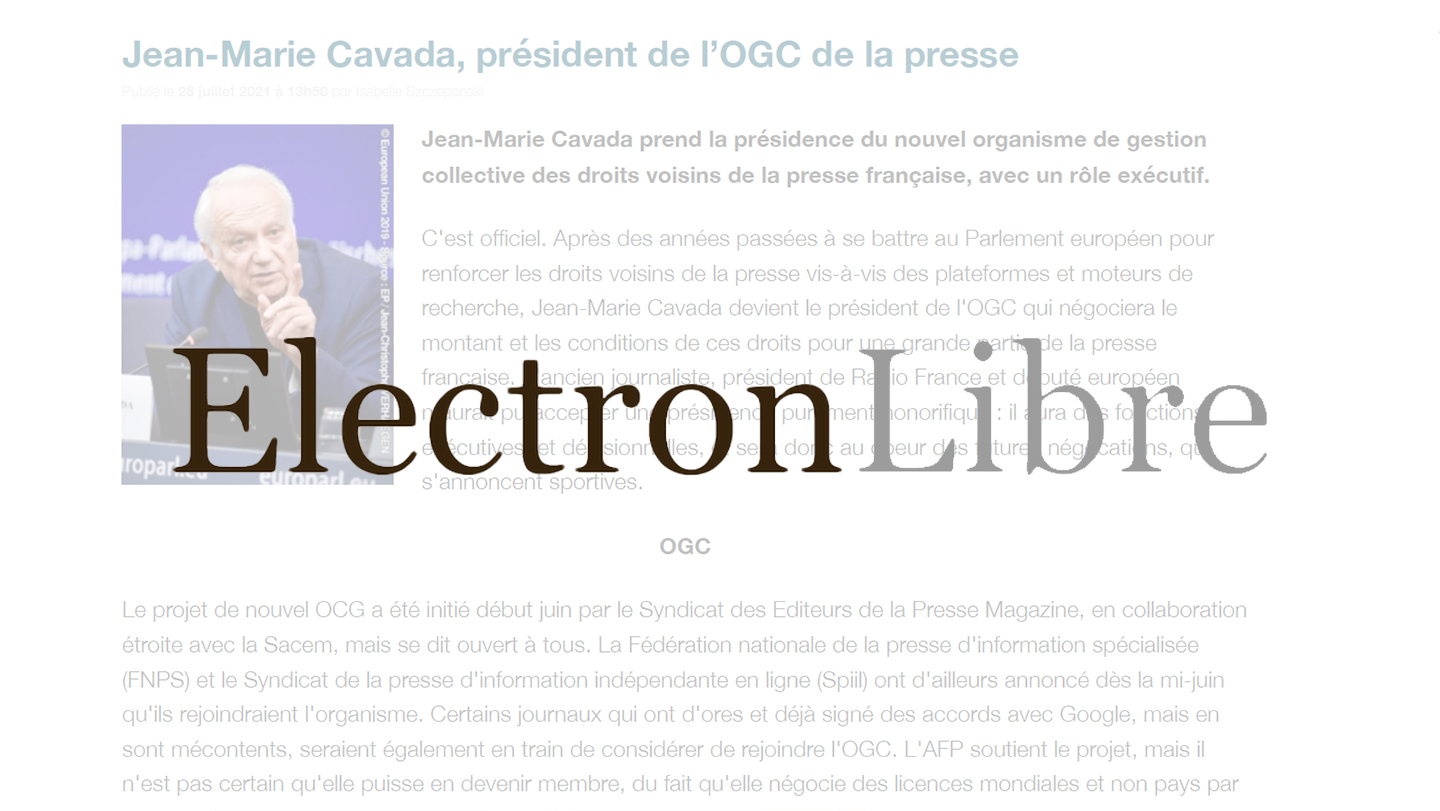

Google, entreprise malfaisante – Le Point


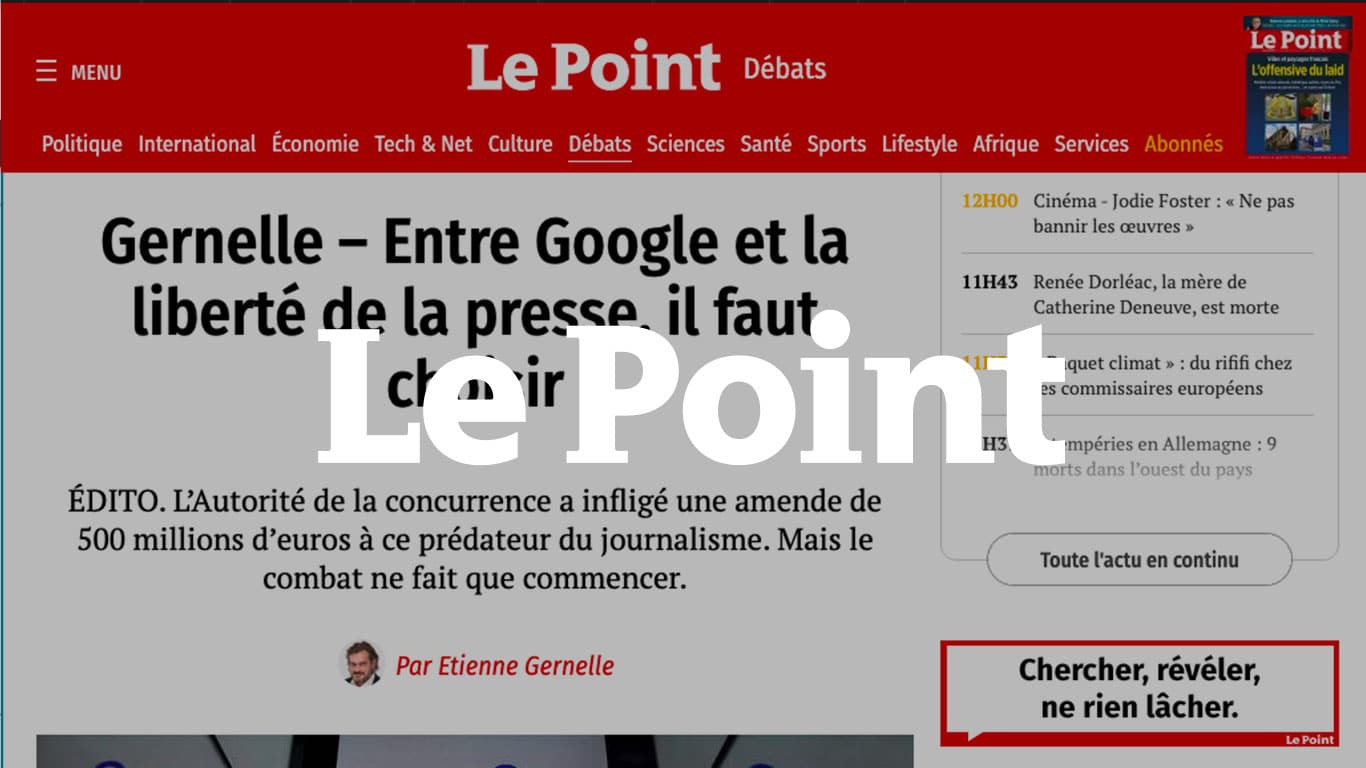
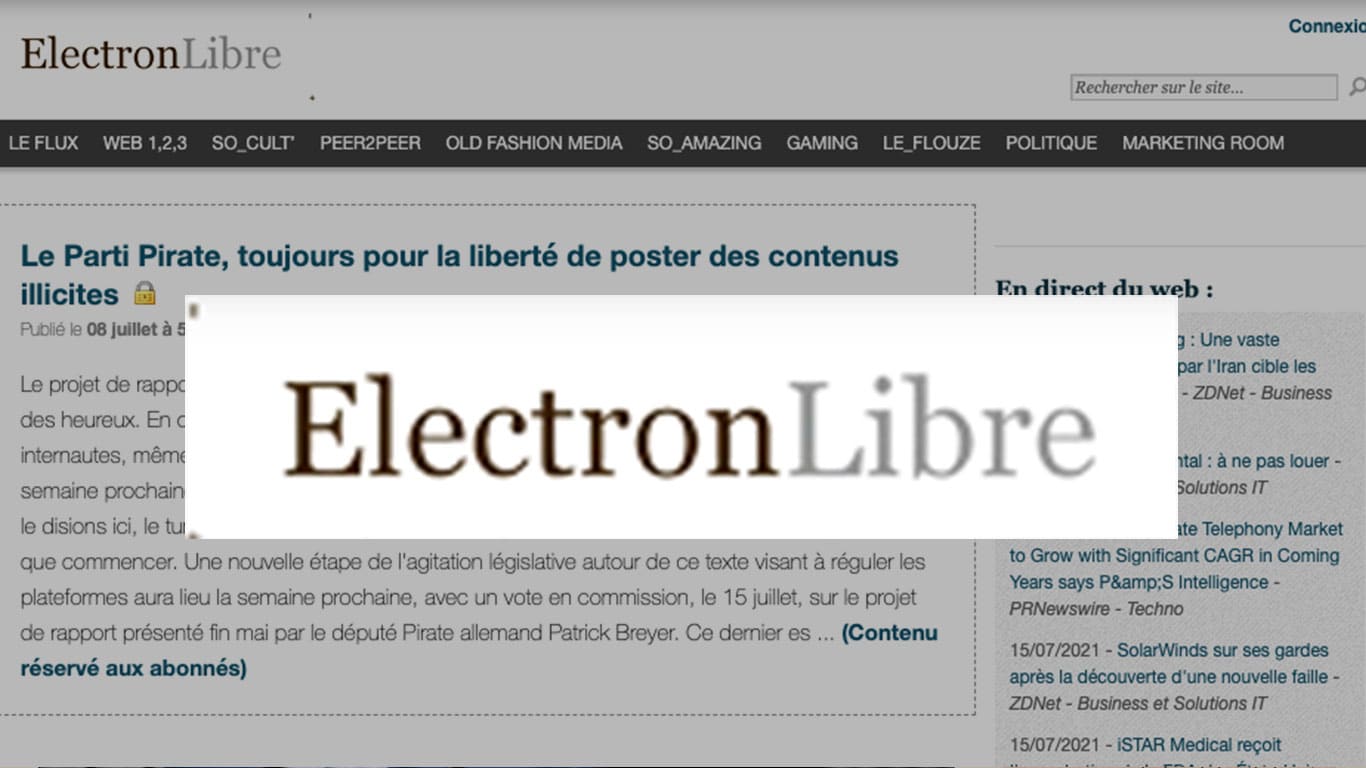












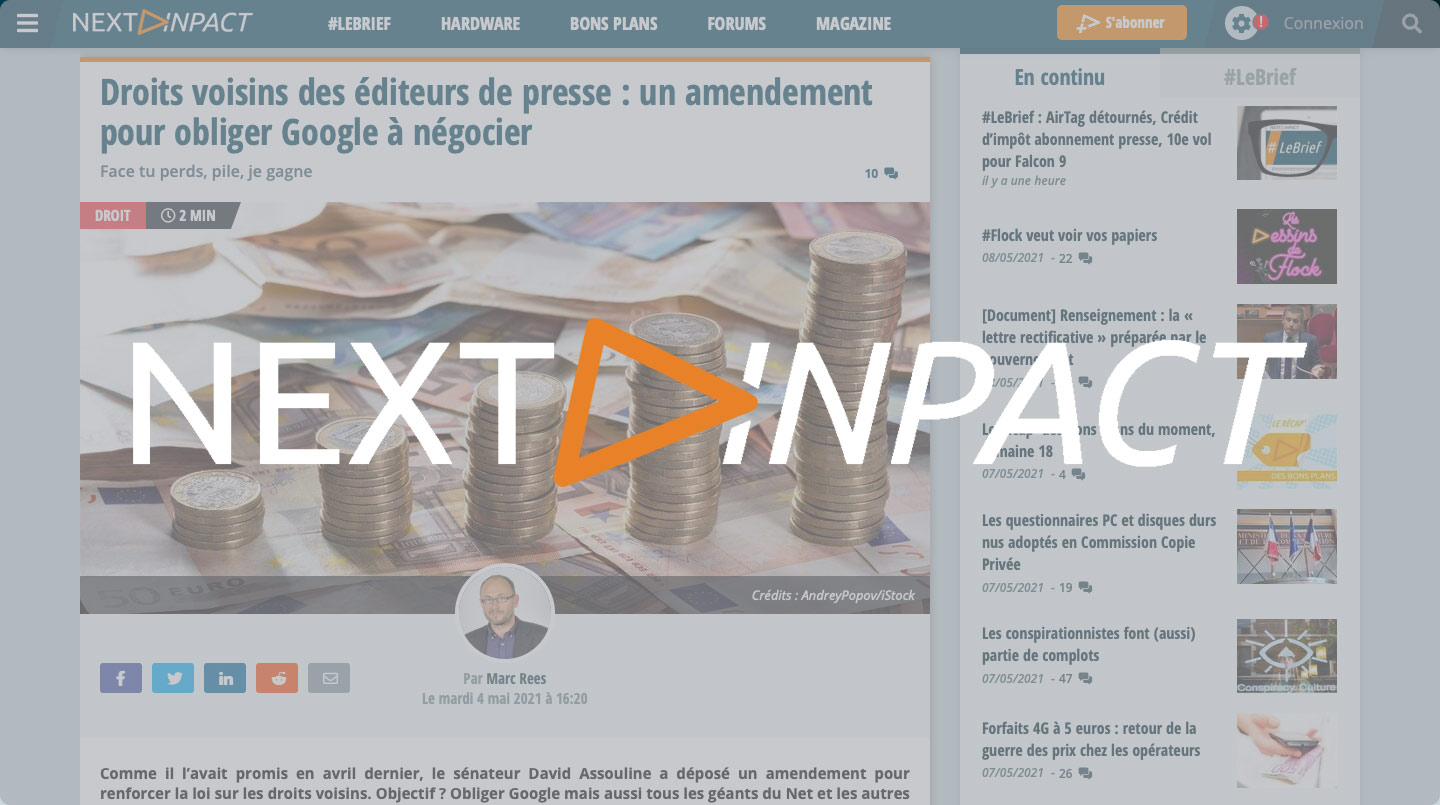
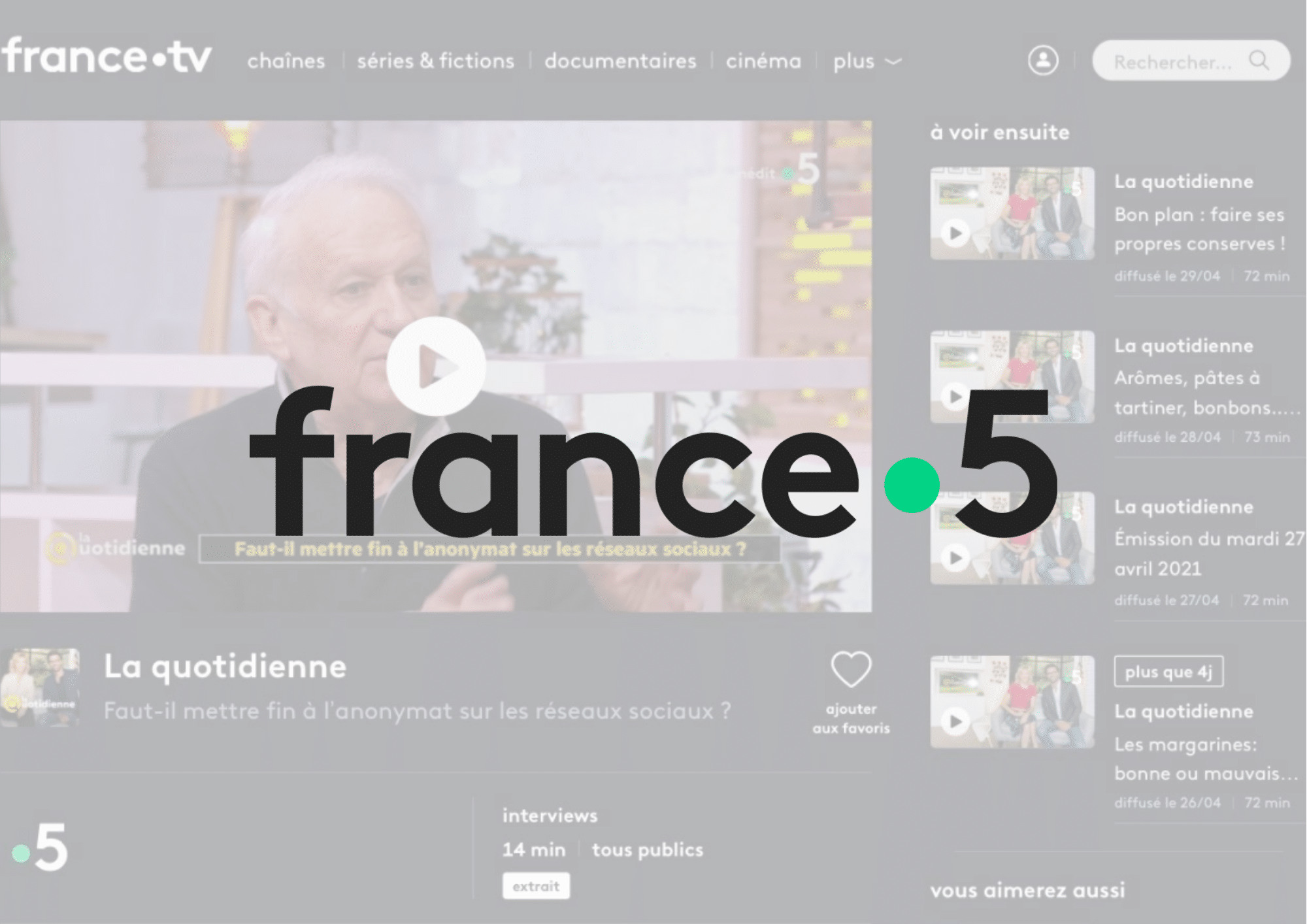
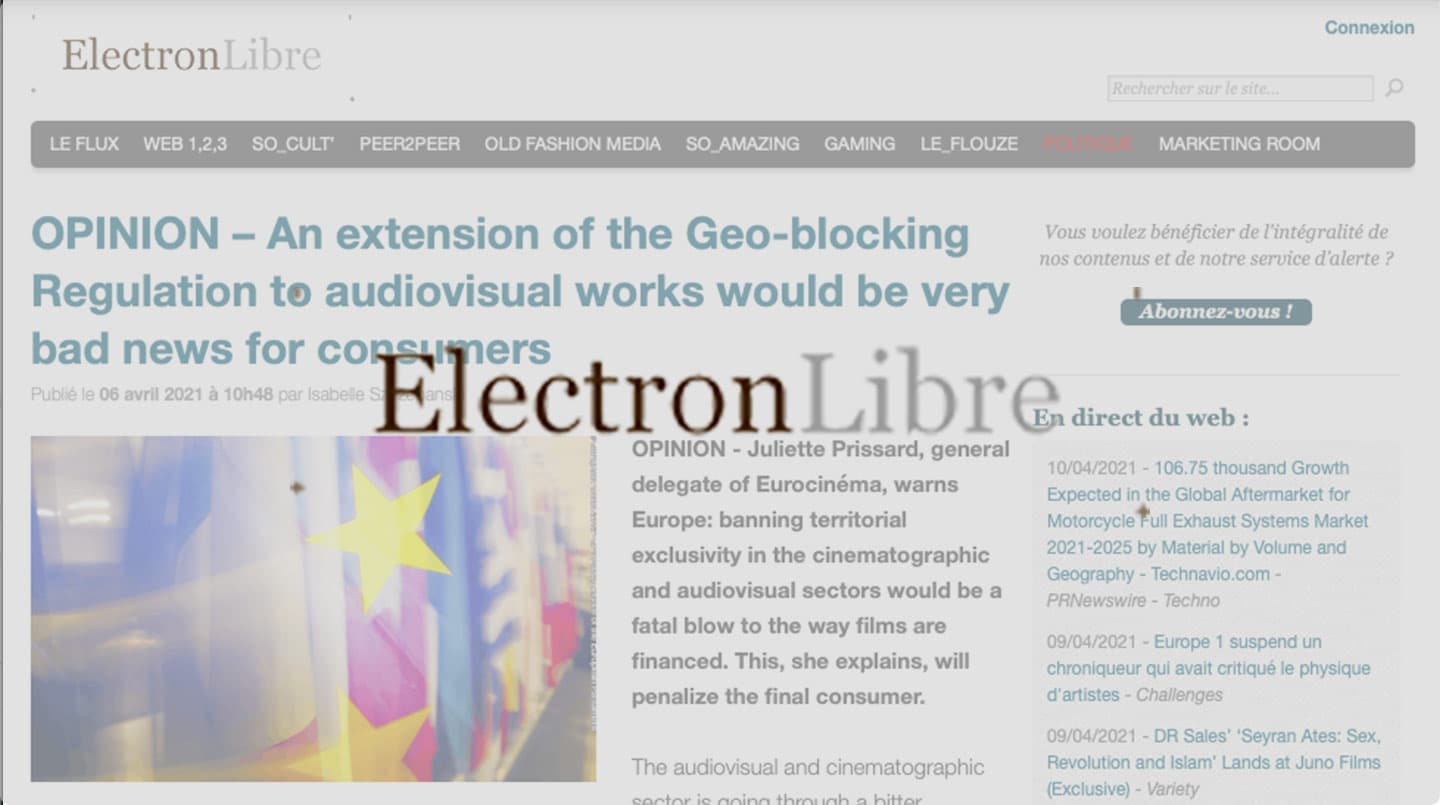
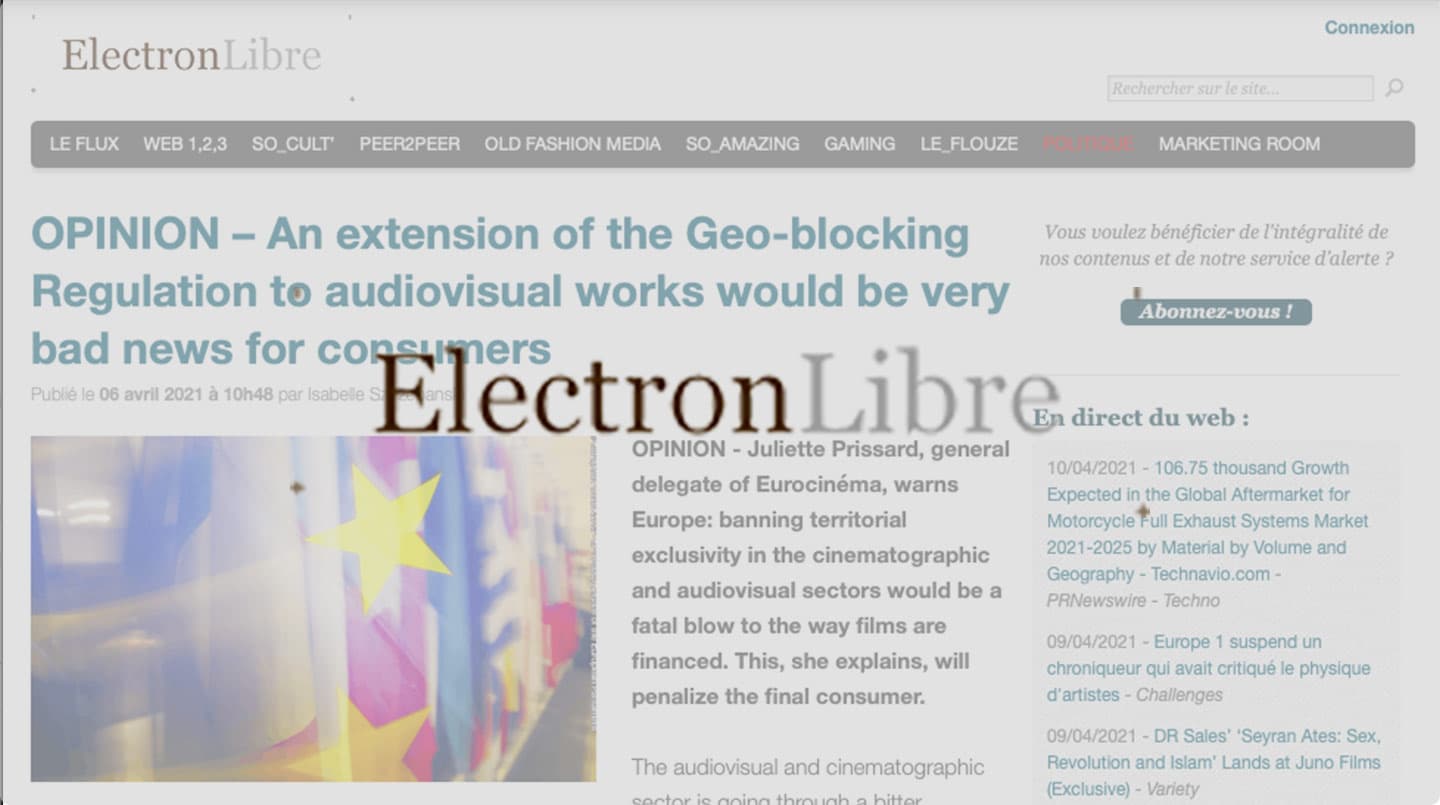

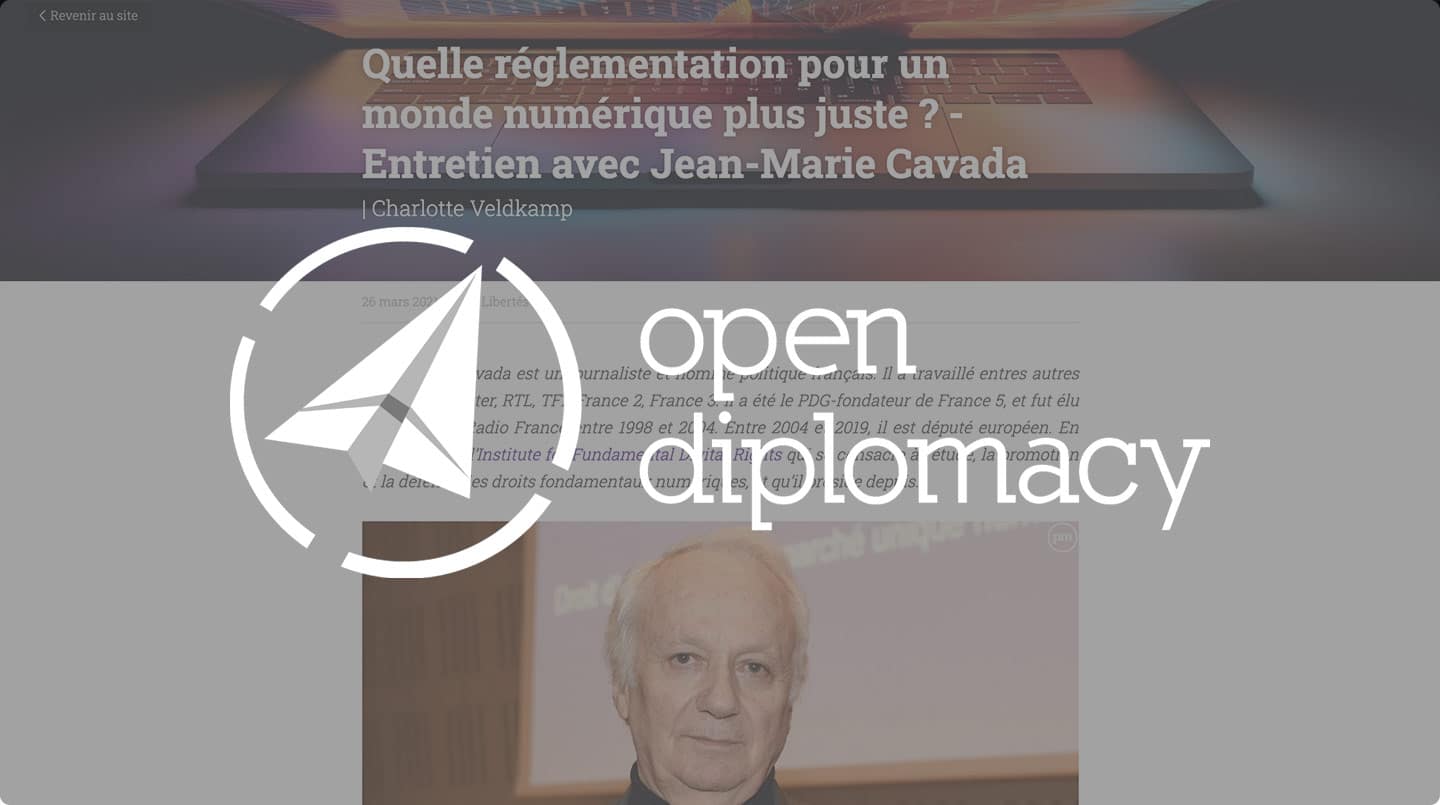
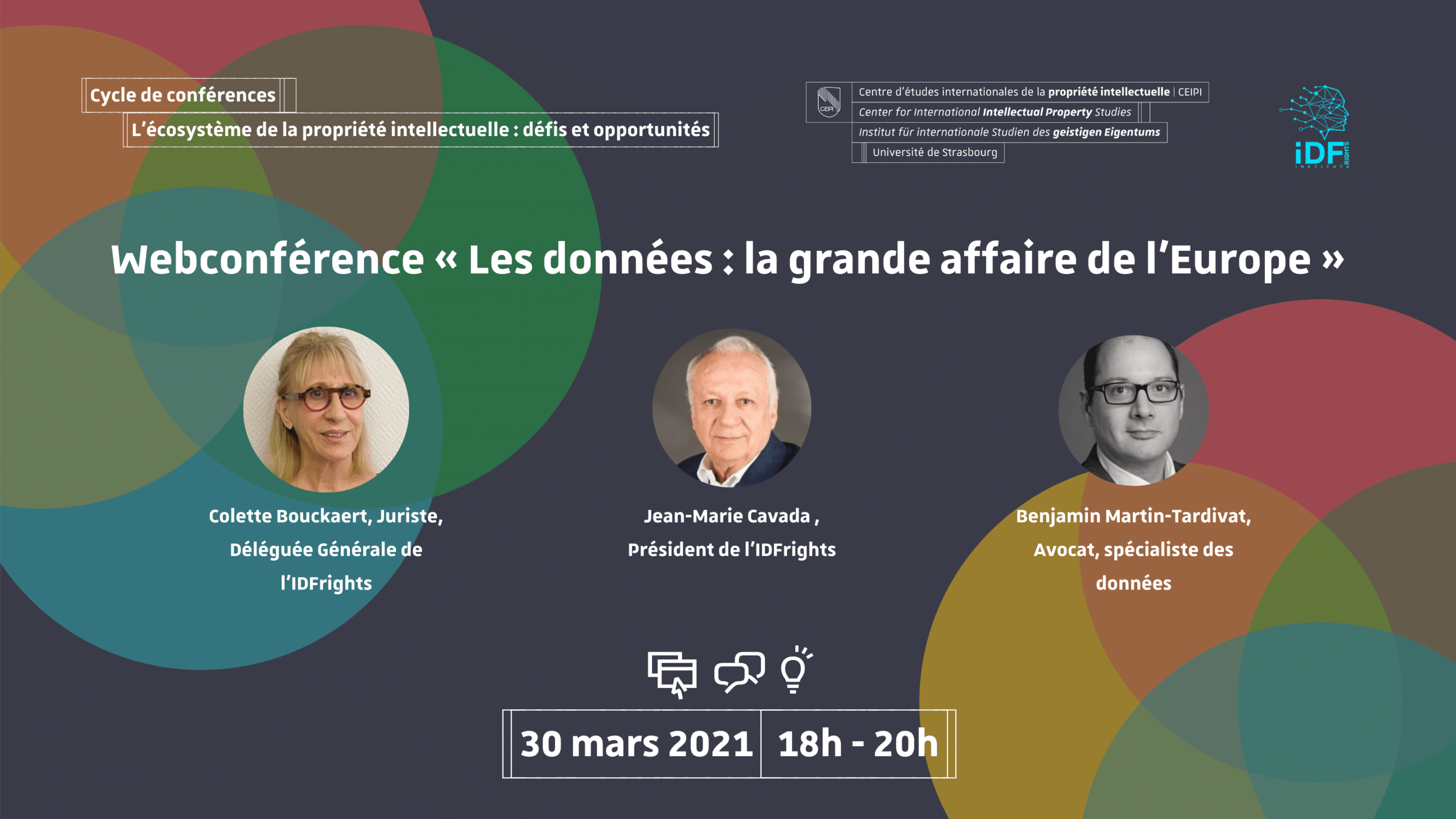
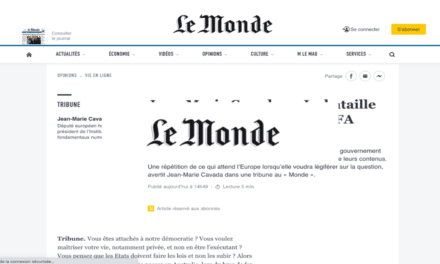

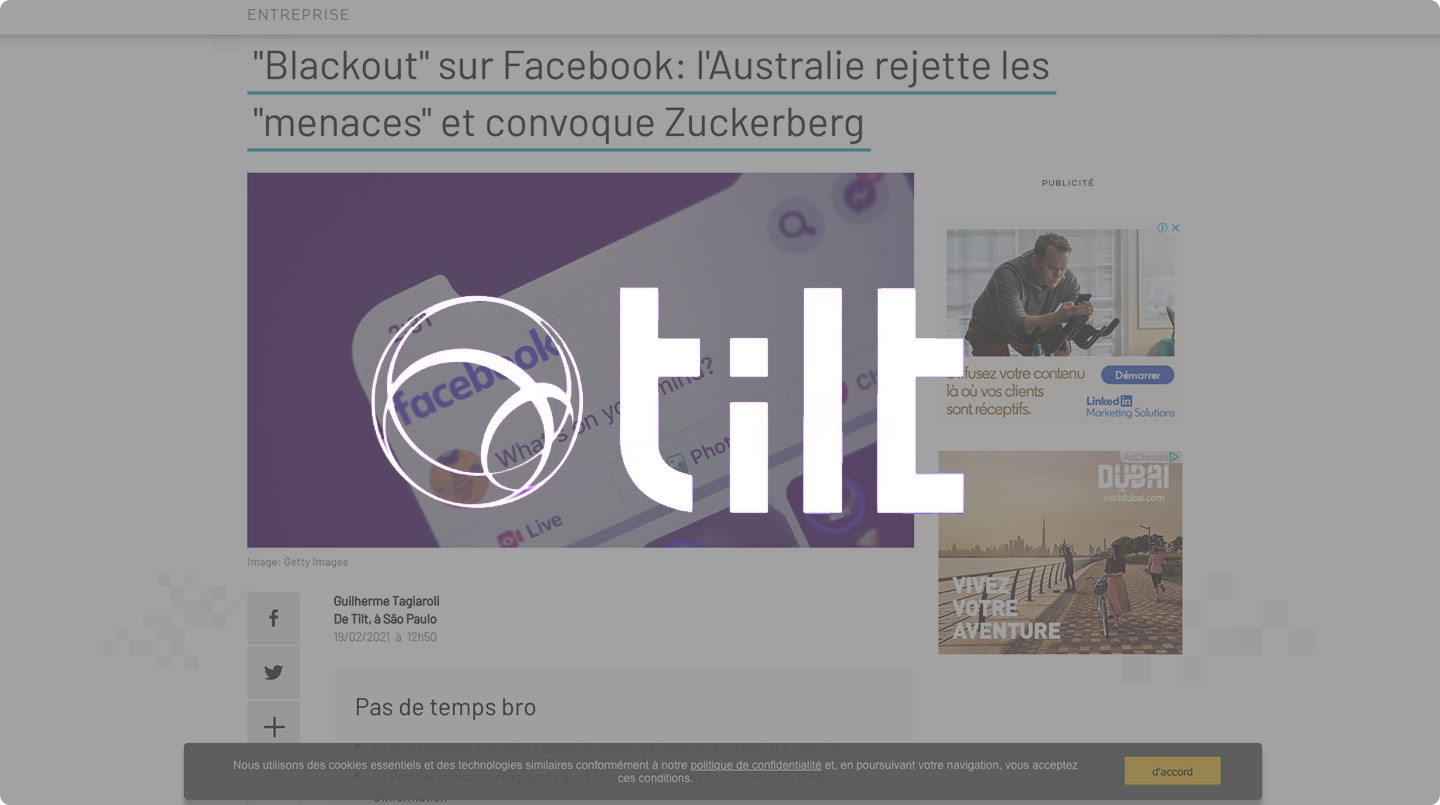

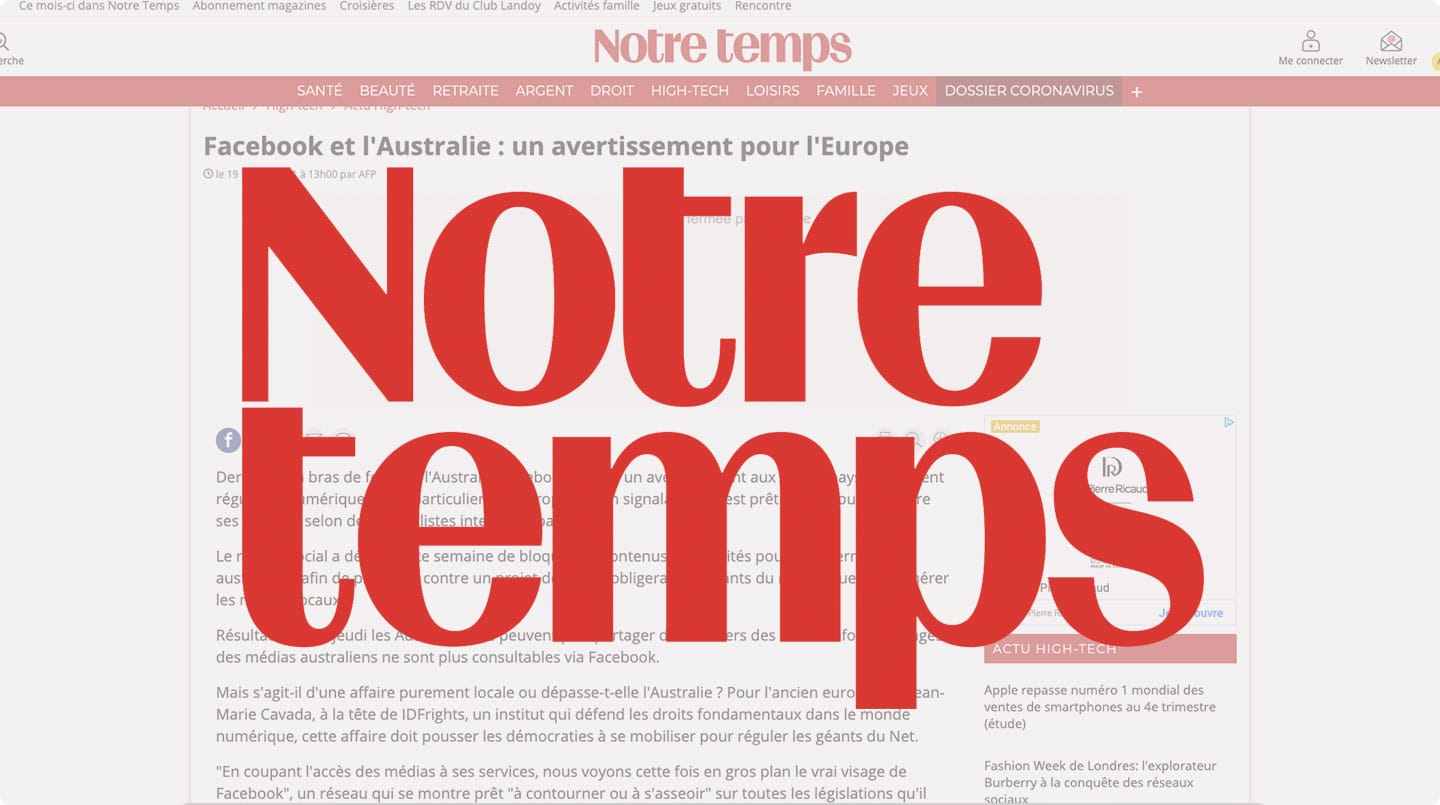
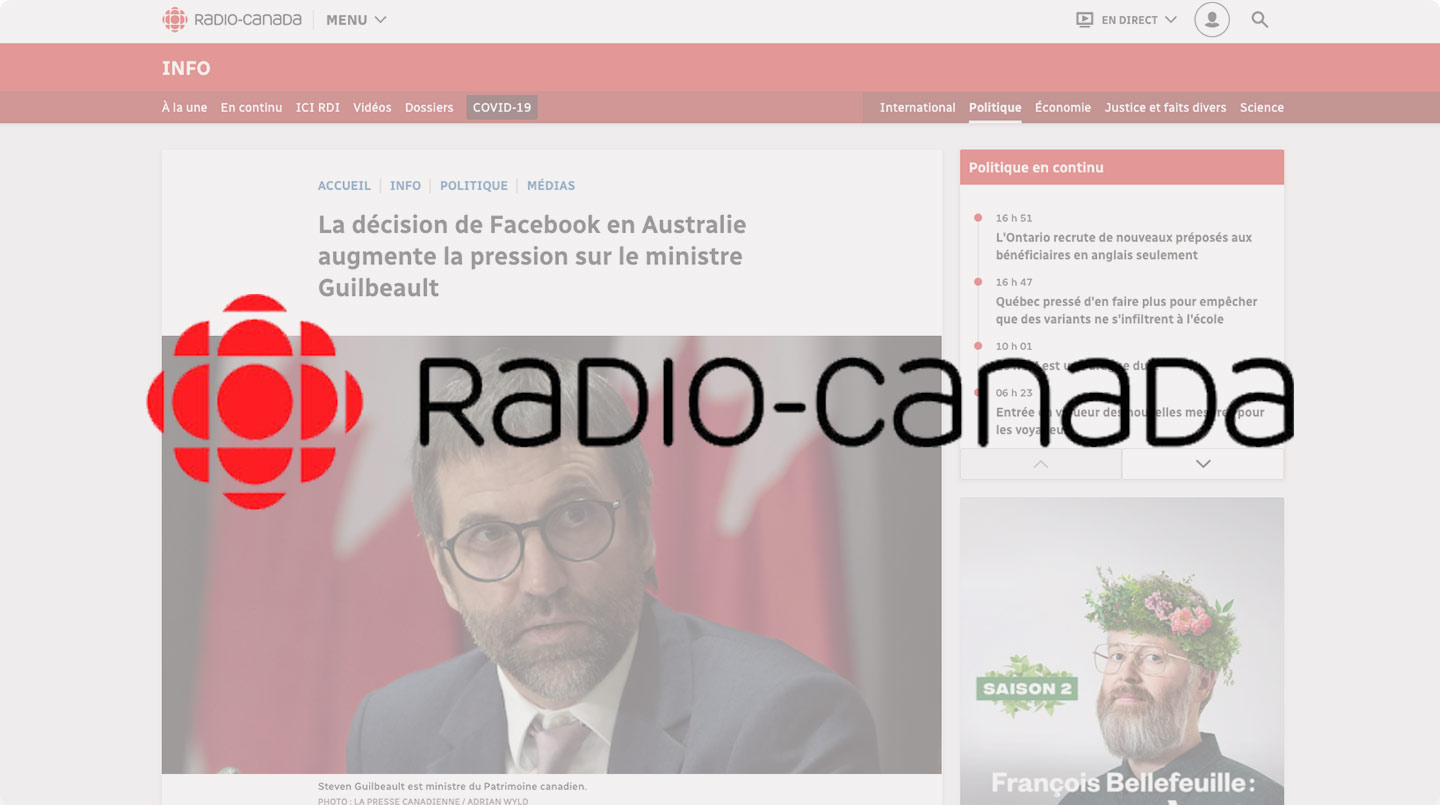
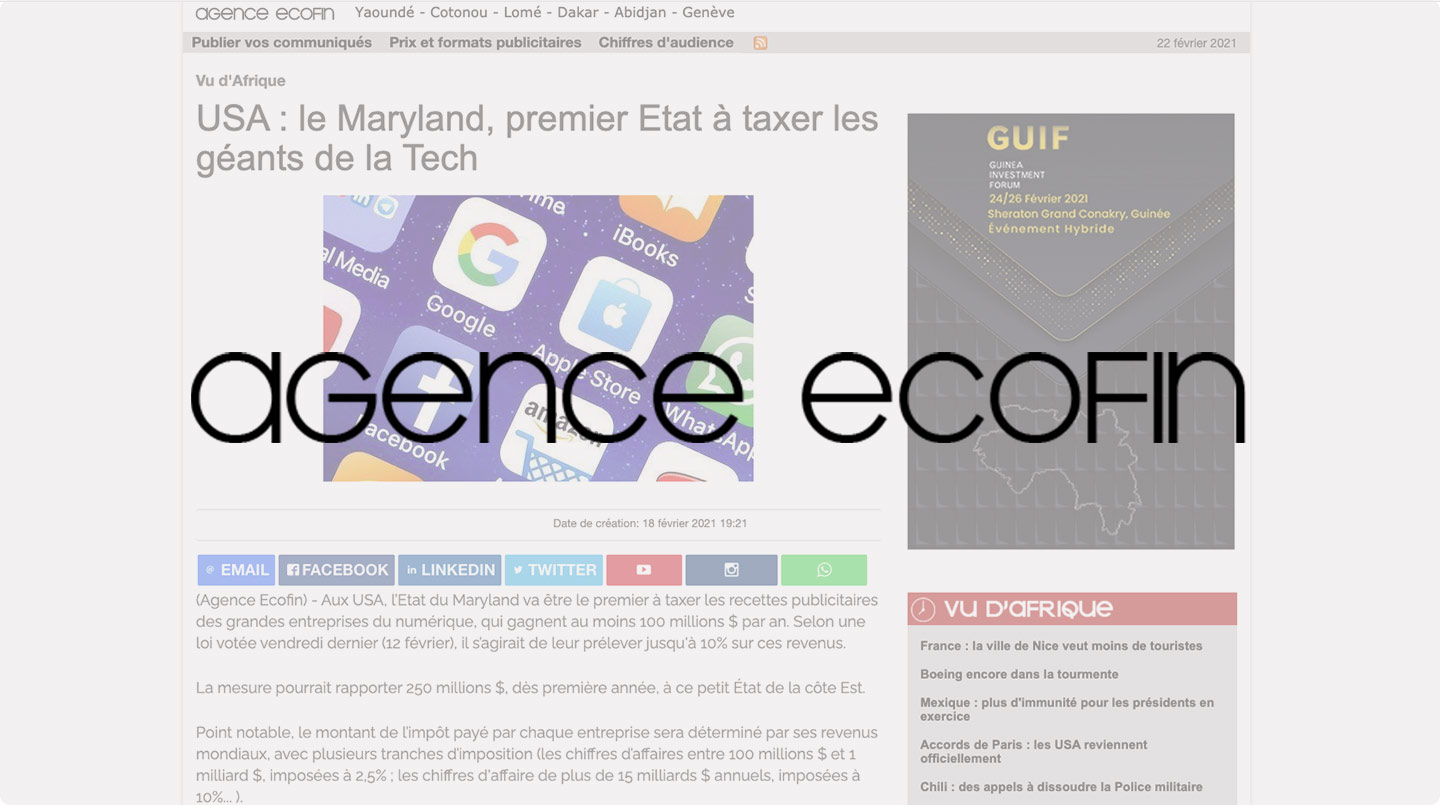


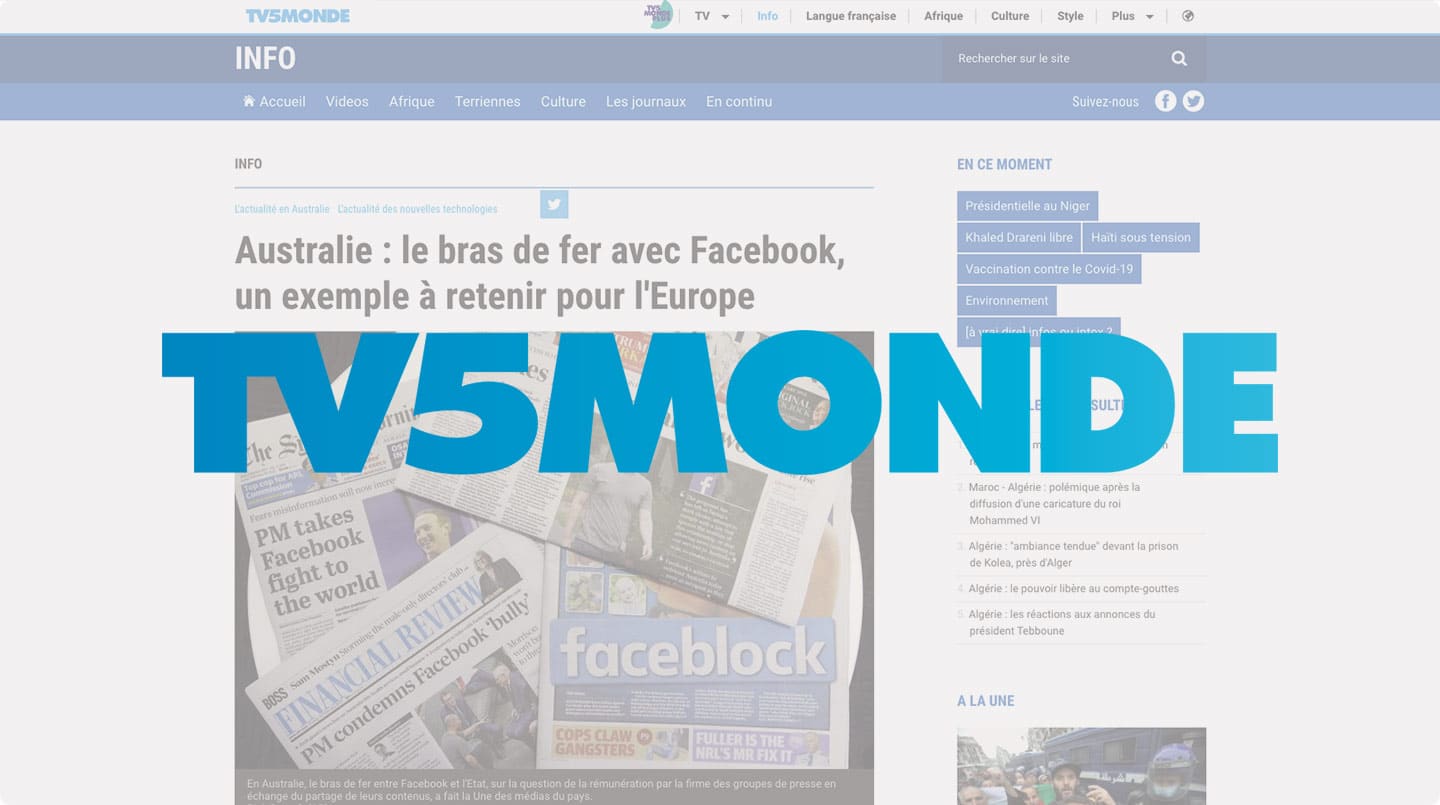
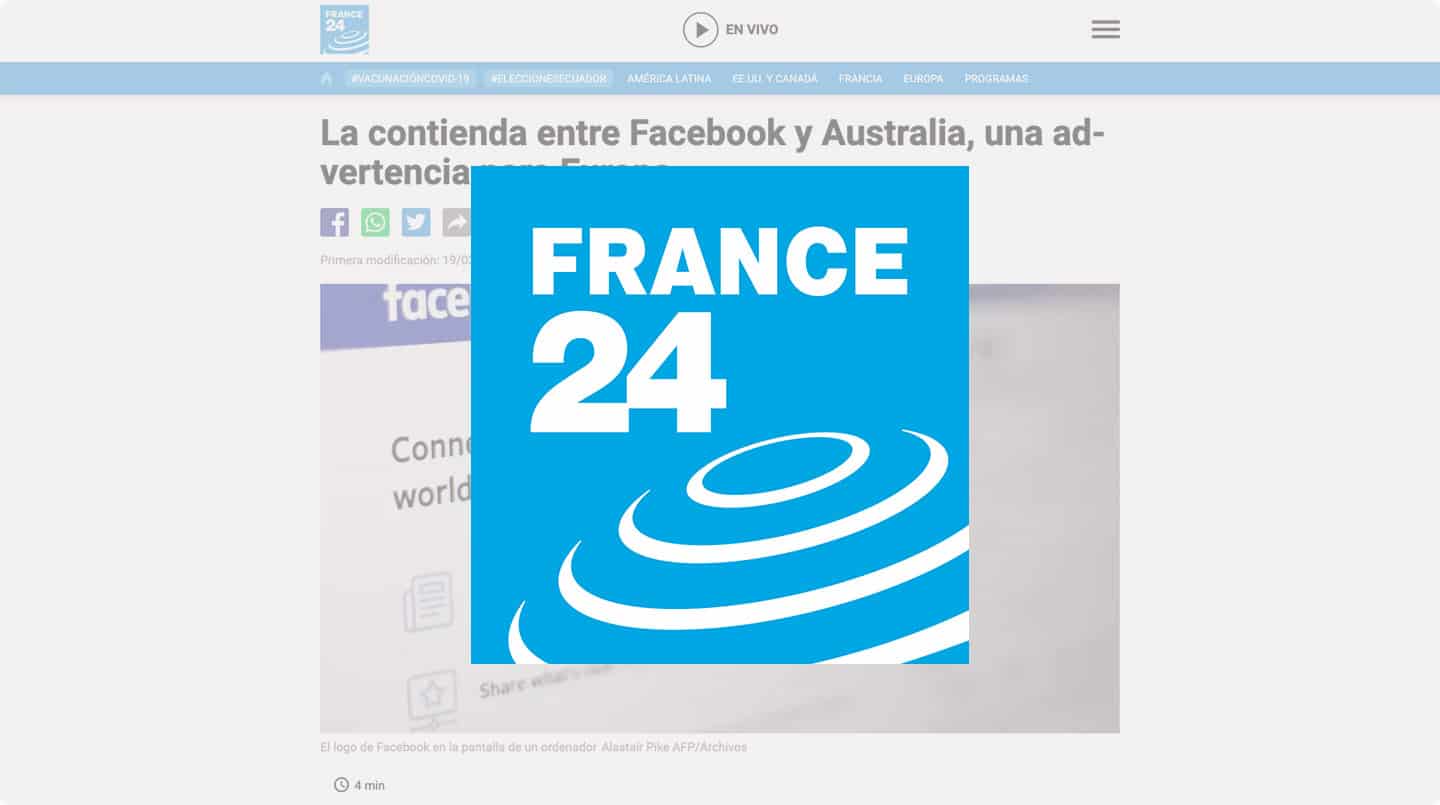



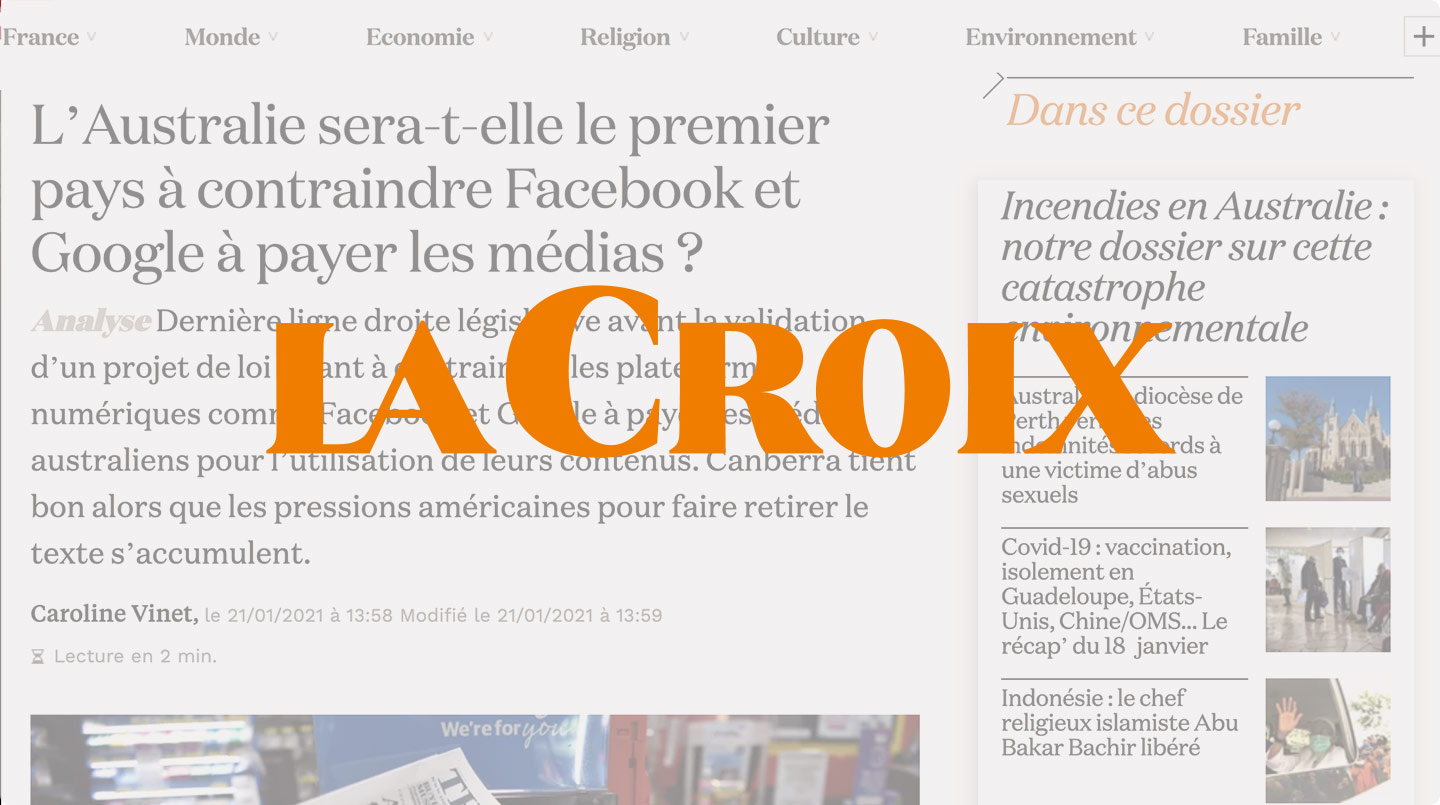


Pitié pour les Droits de l’Homme !

Joe Biden, l’ami de la BigTech
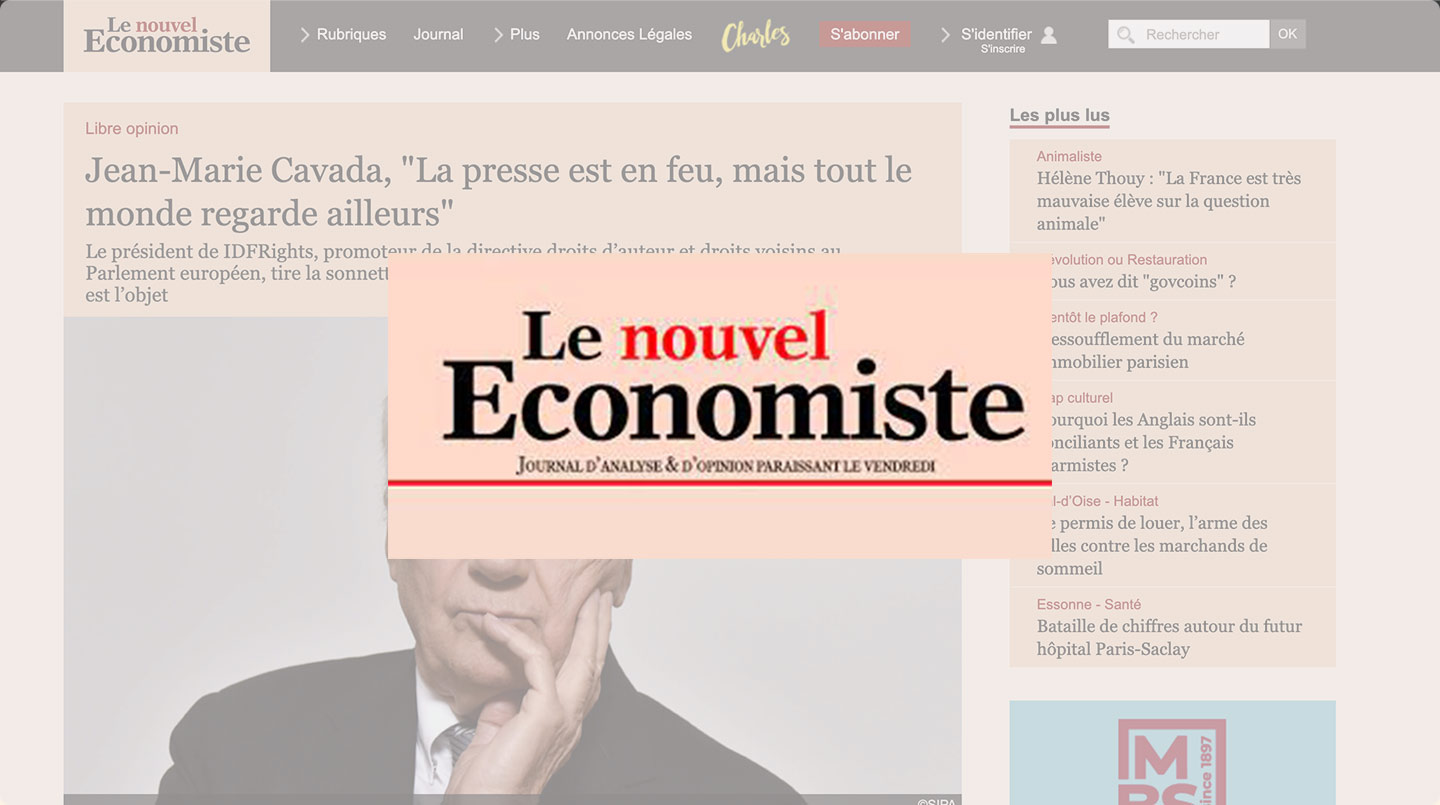
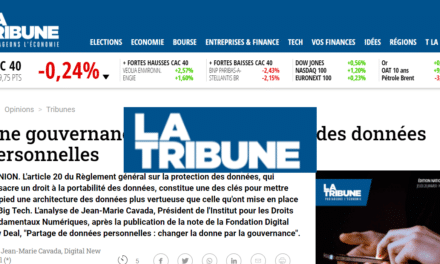




Netflix : un défi à relever pour l’Europe

Une Europe sans véto face aux prédateurs numériques




Covid-19 et usages du numérique en Afrique
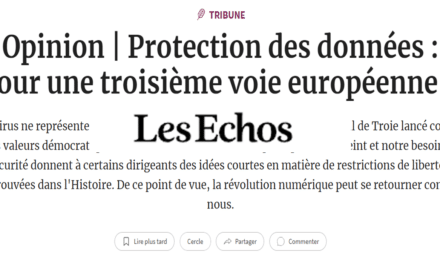
Numérique : l’Afrique veut donner de la voix


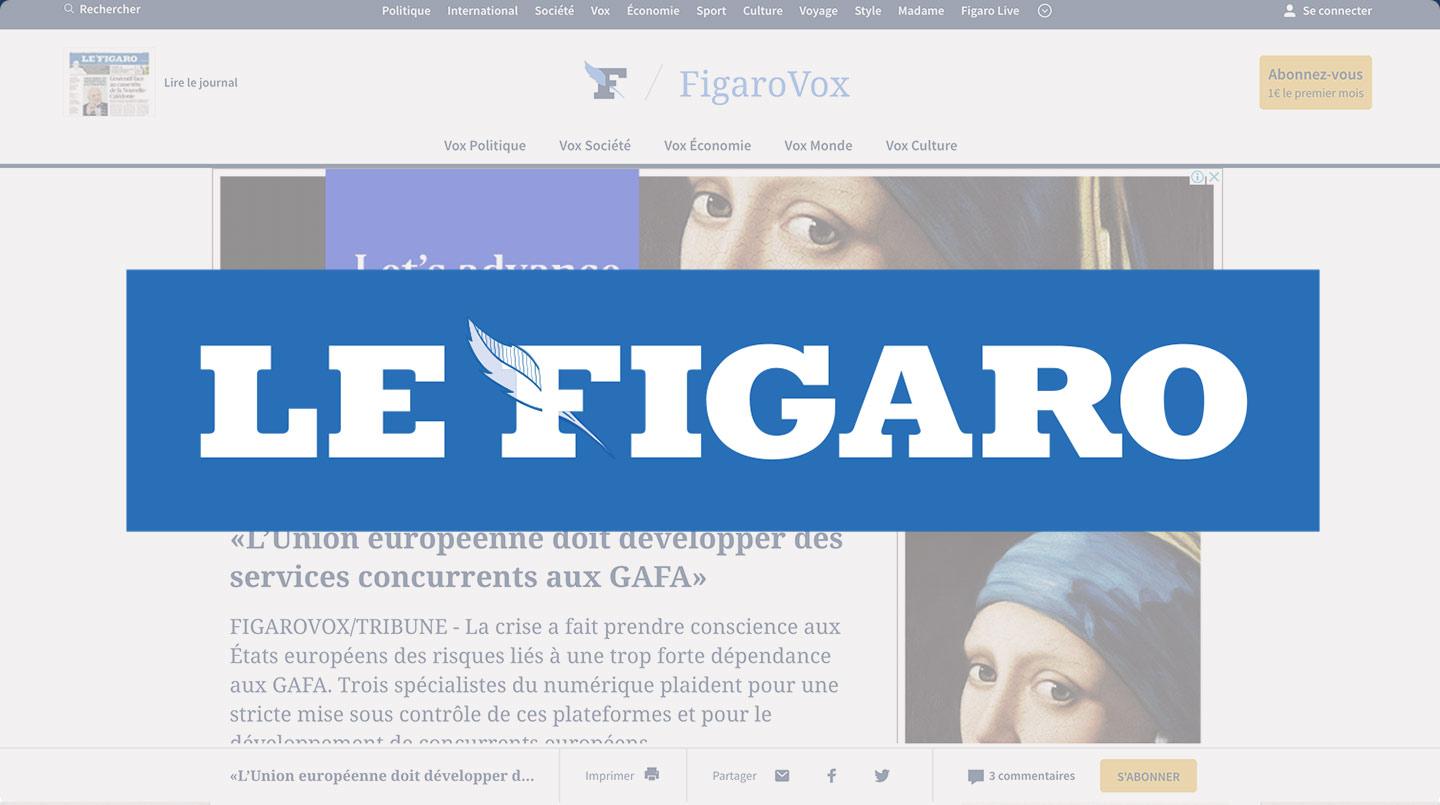

Numérique : séparer les pouvoirs.

STOP COVID : l’avenir d’internet est entre vos mains

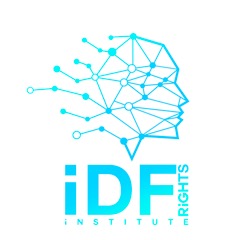
institute for Digital Fundamental Rights
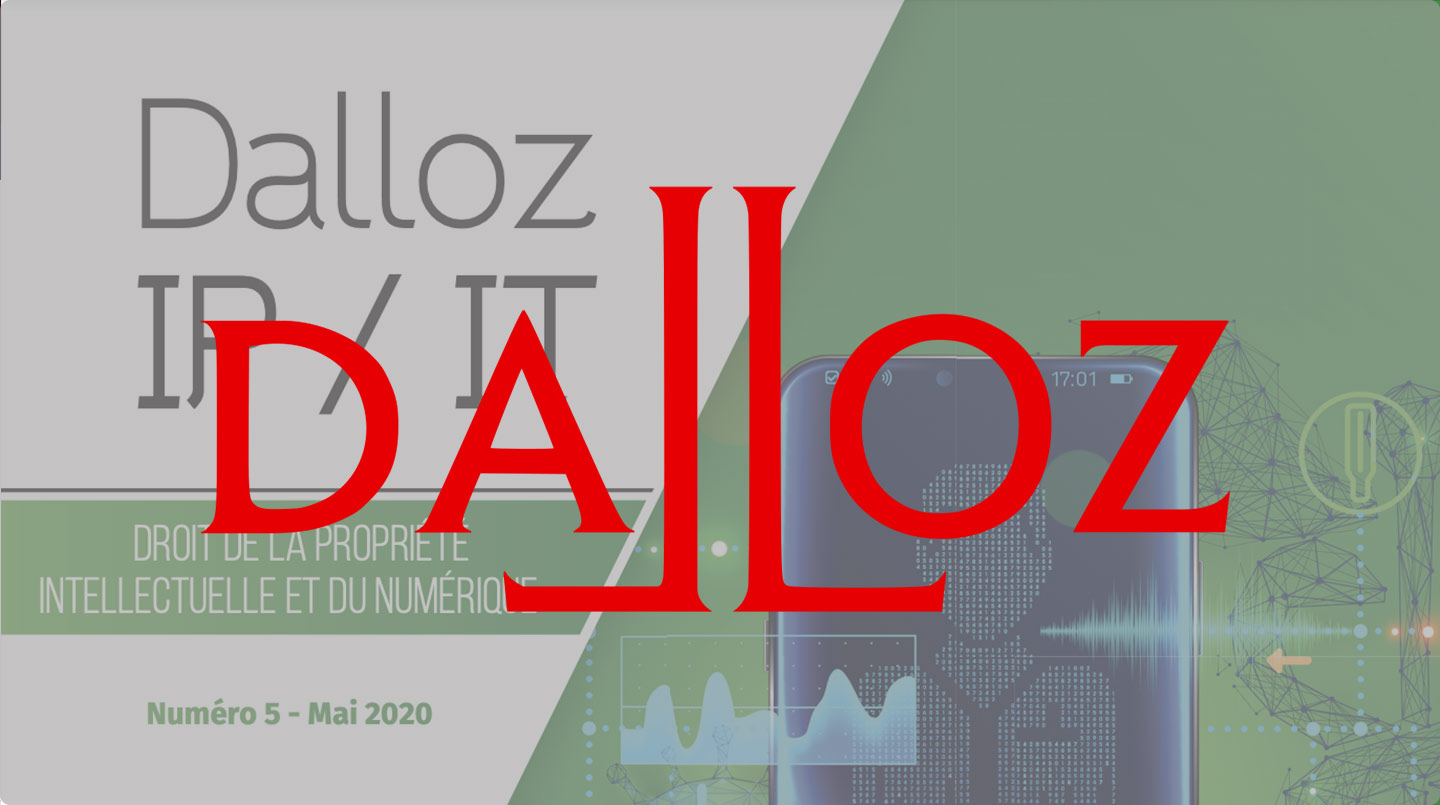


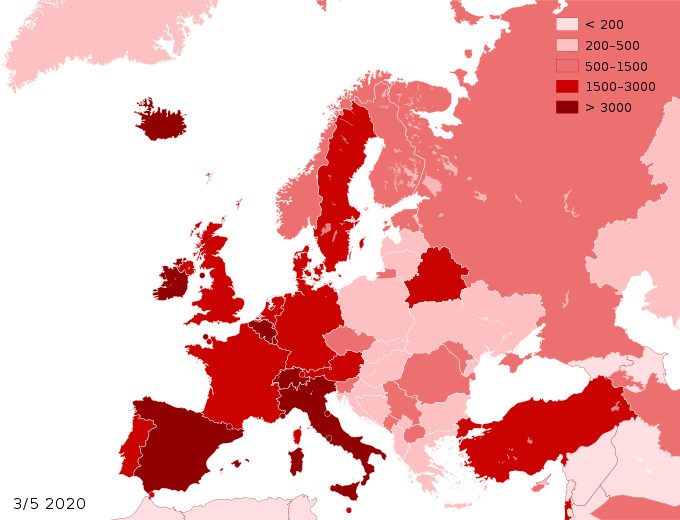
La protection des données et la crise sanitaire
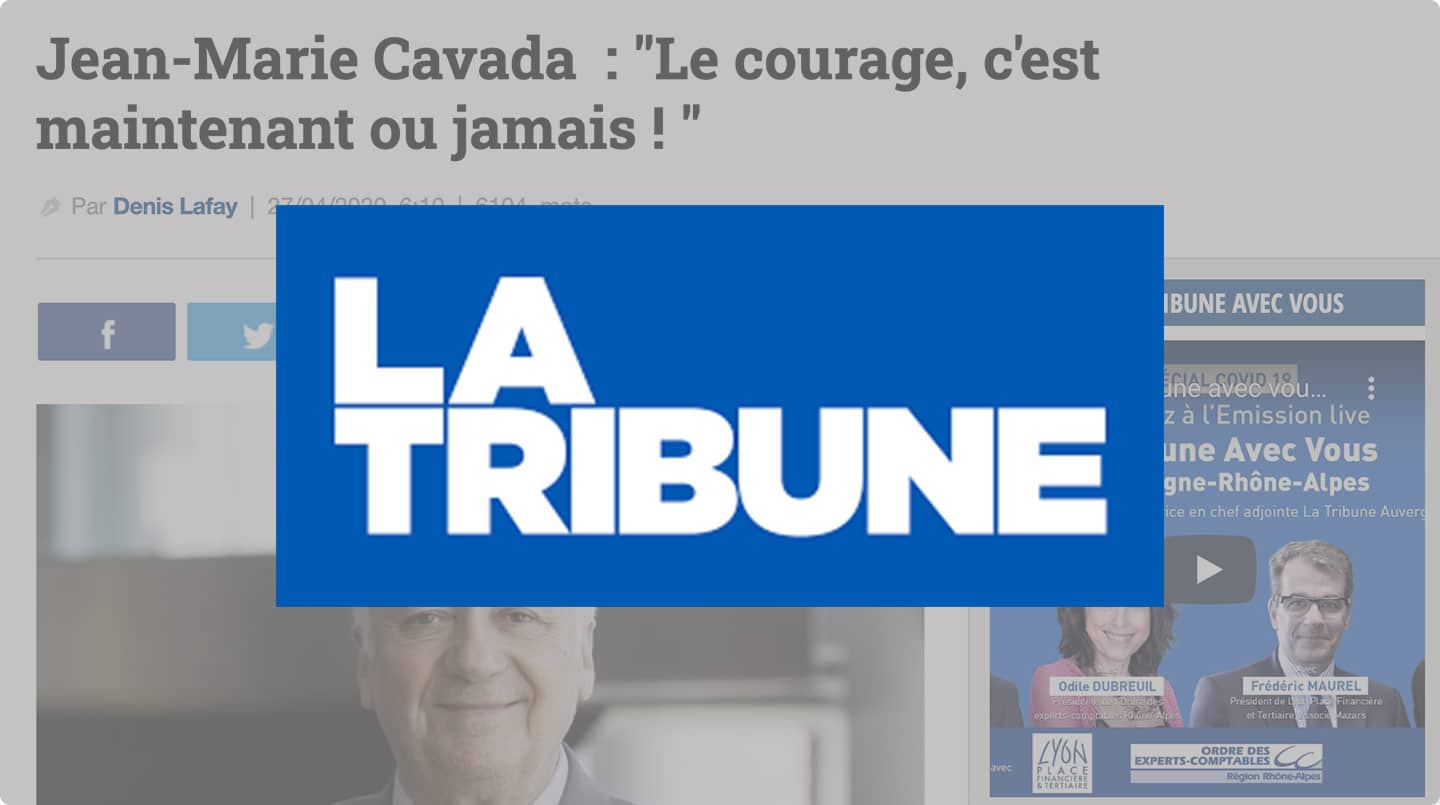
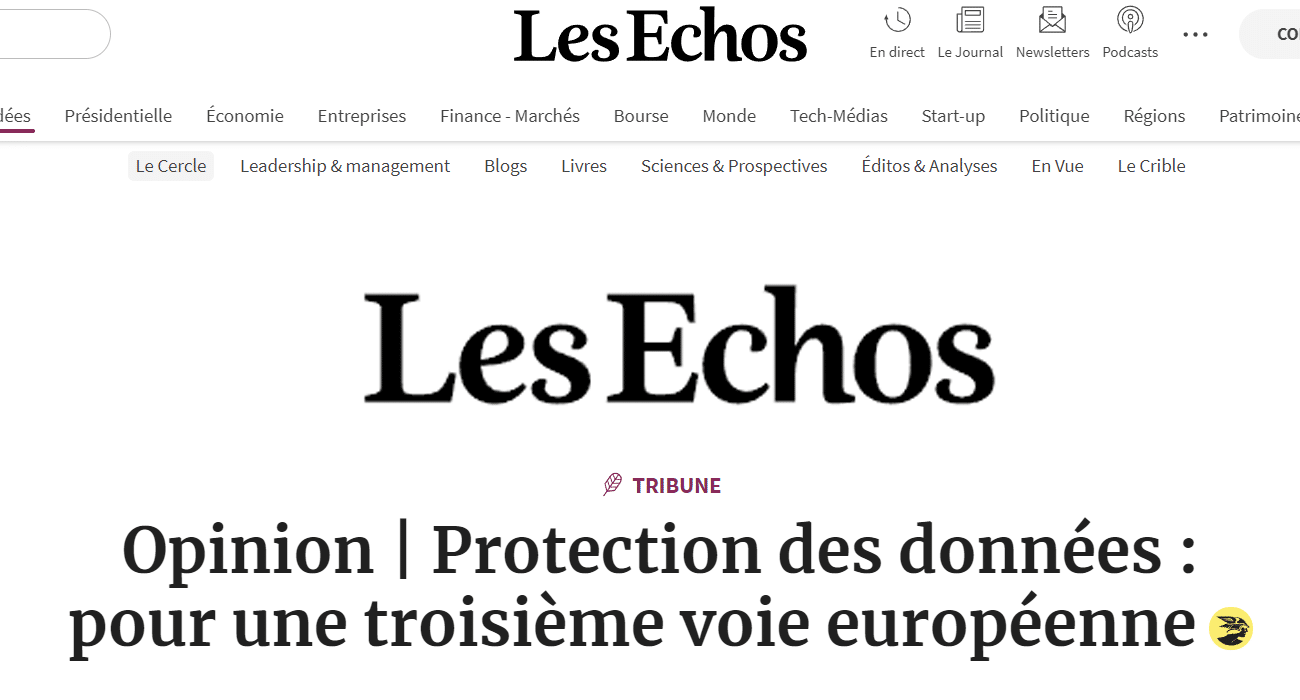

Tribune dans Les Echos
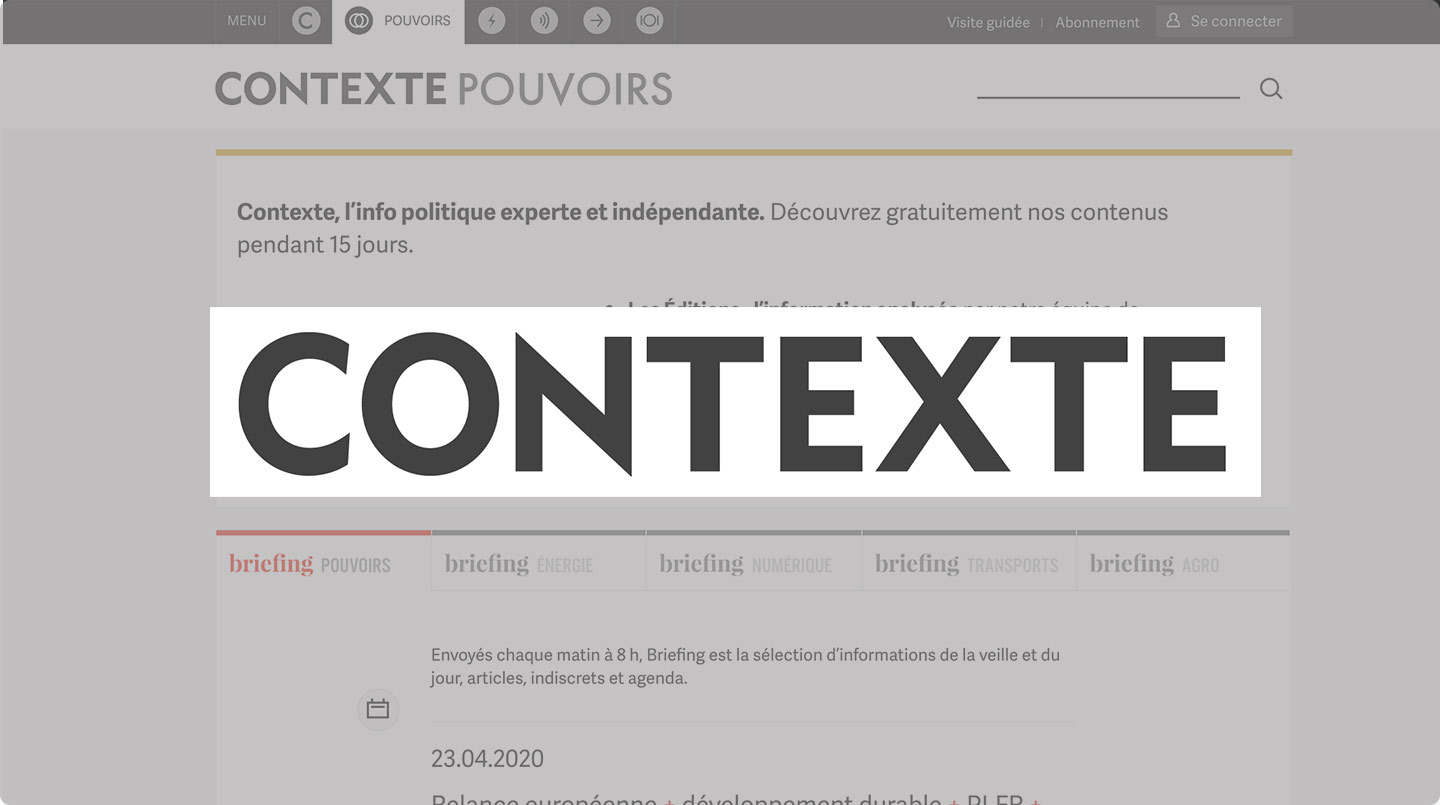

Newsletter de Contexte

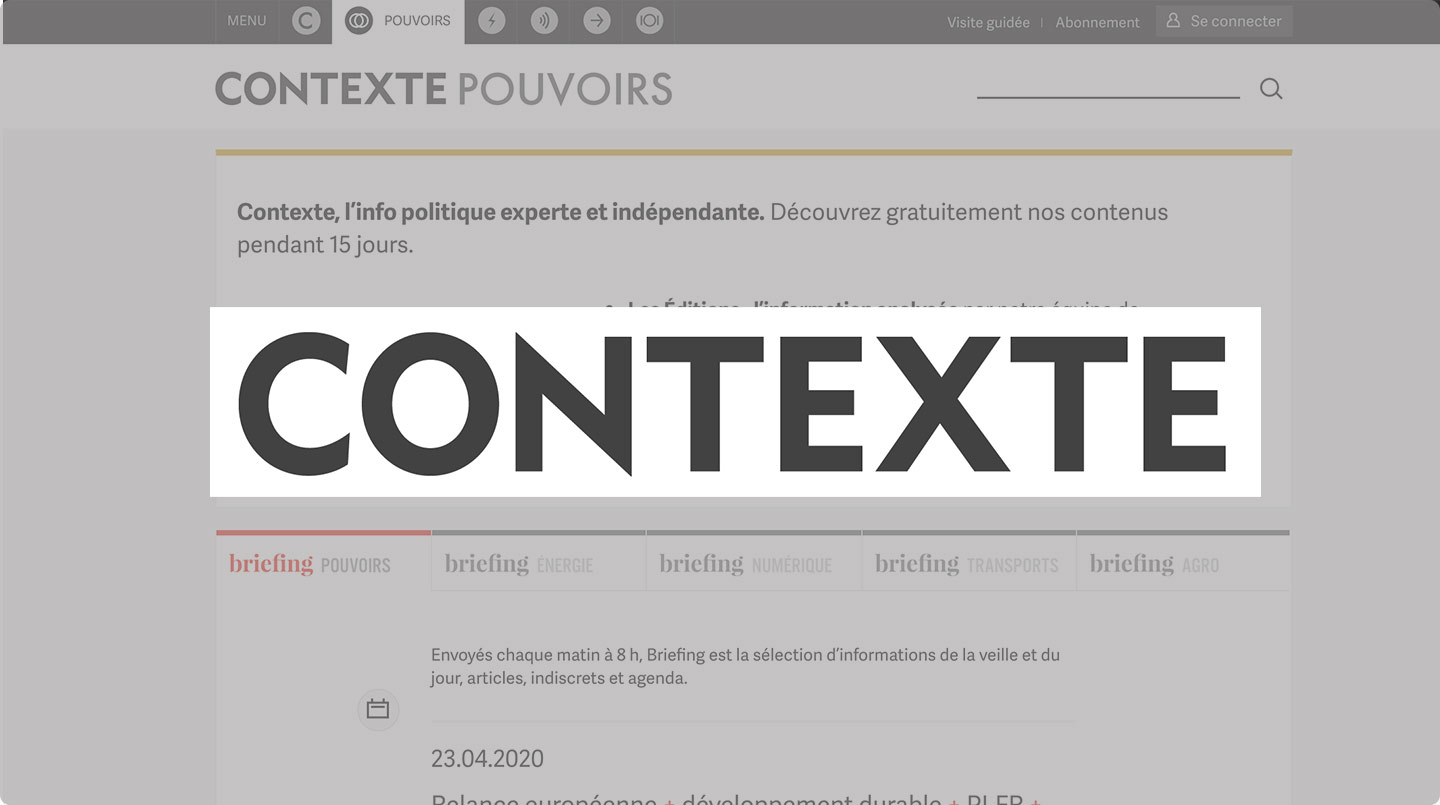
Article de ElectronLibre


Article de European Scientists
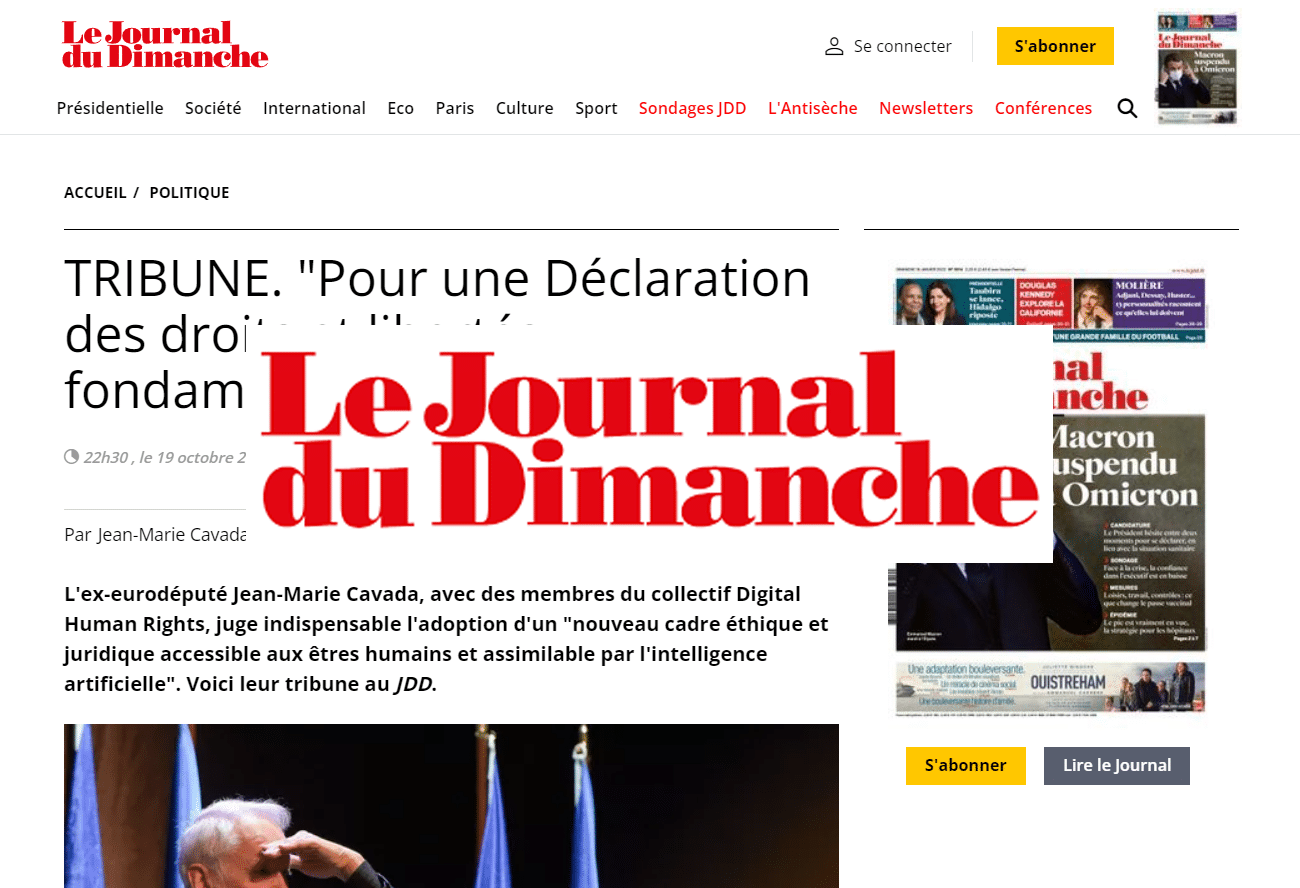
Tribune dans le JDD









